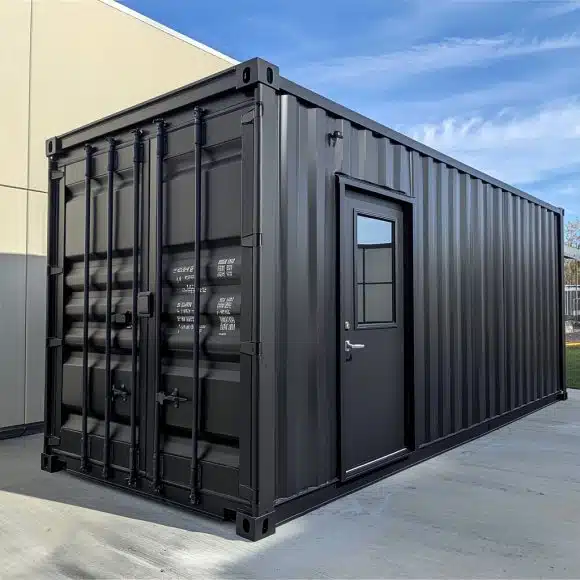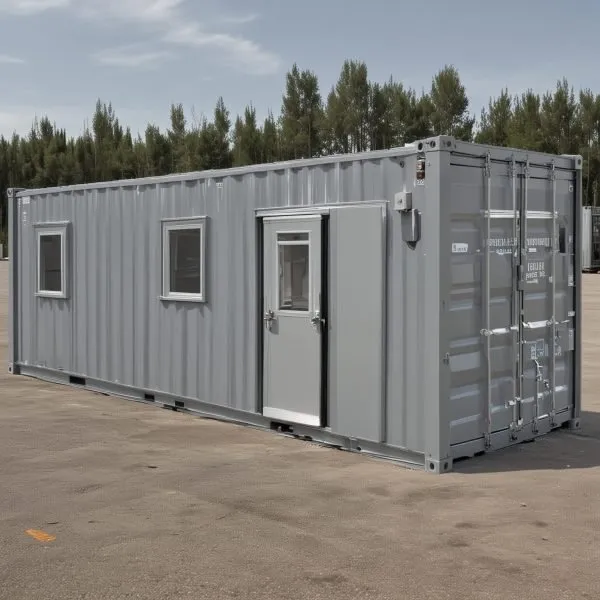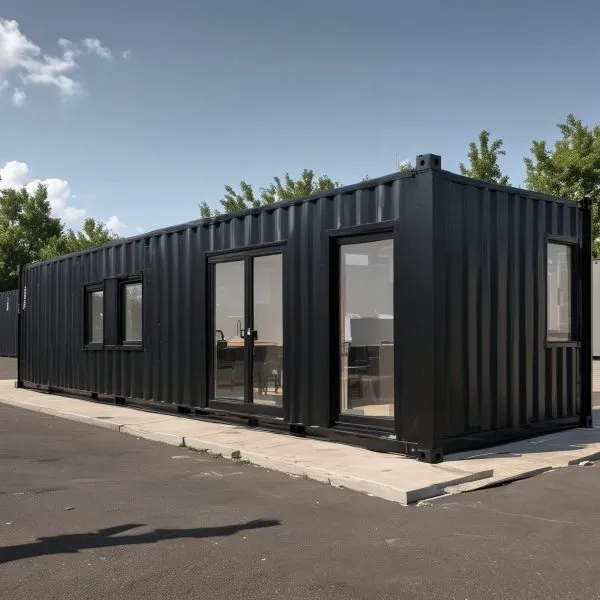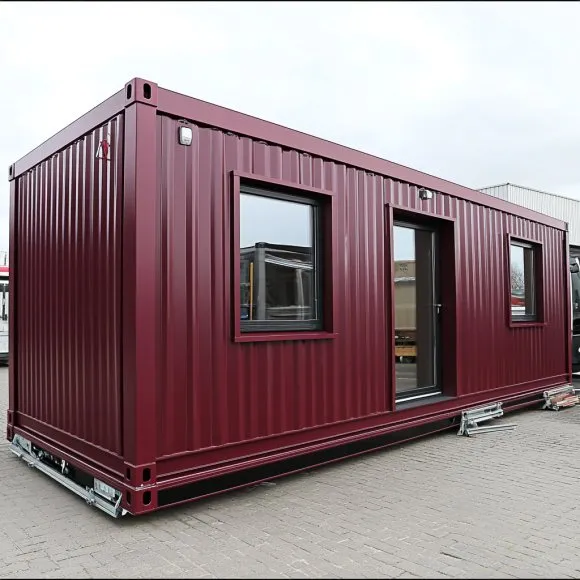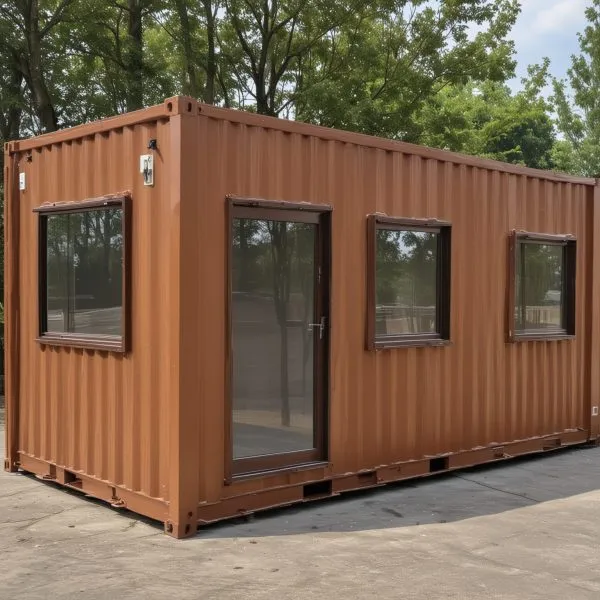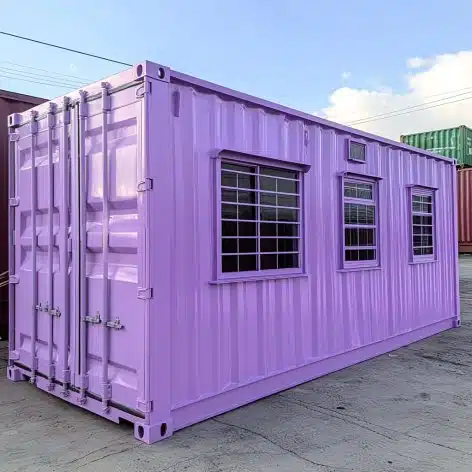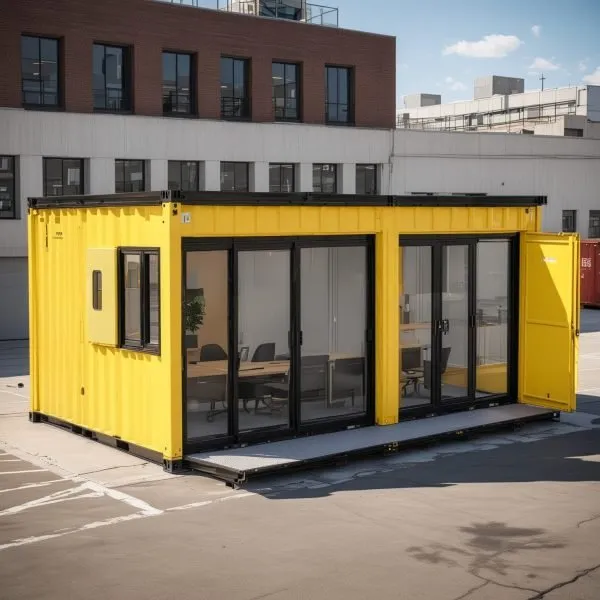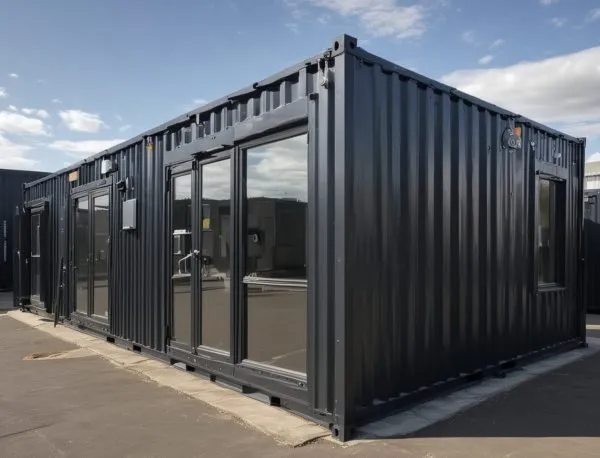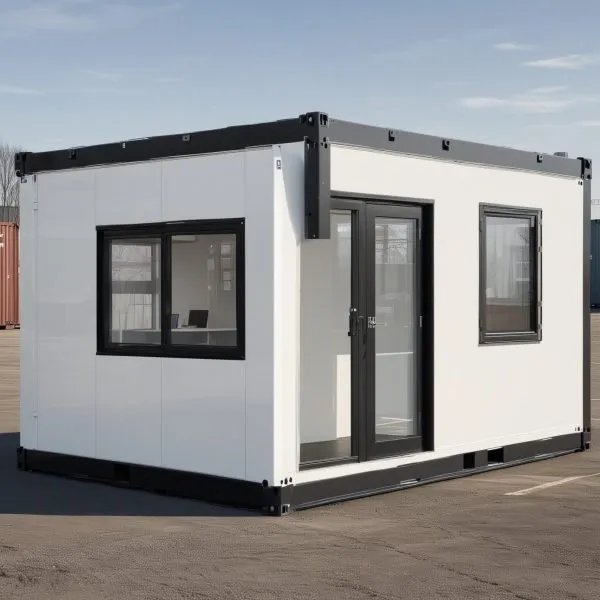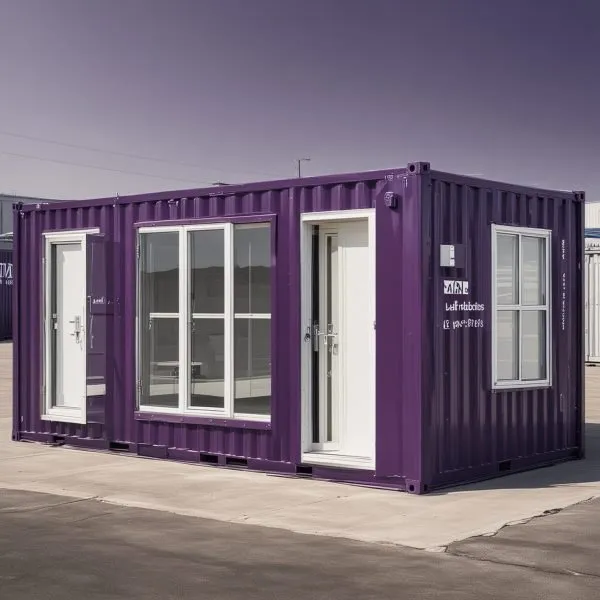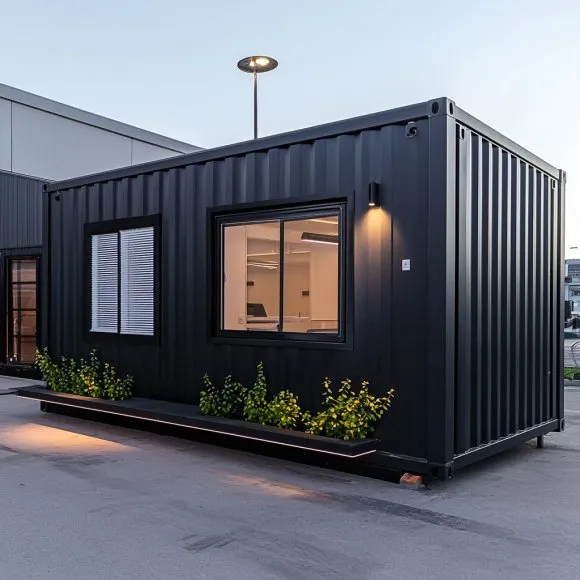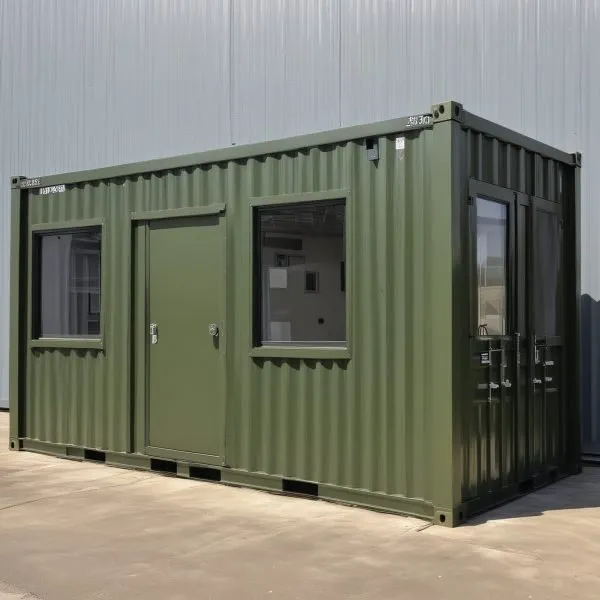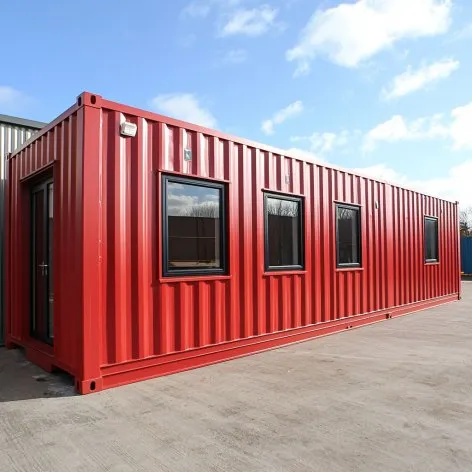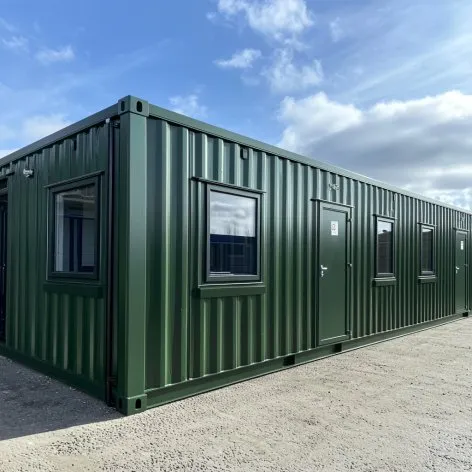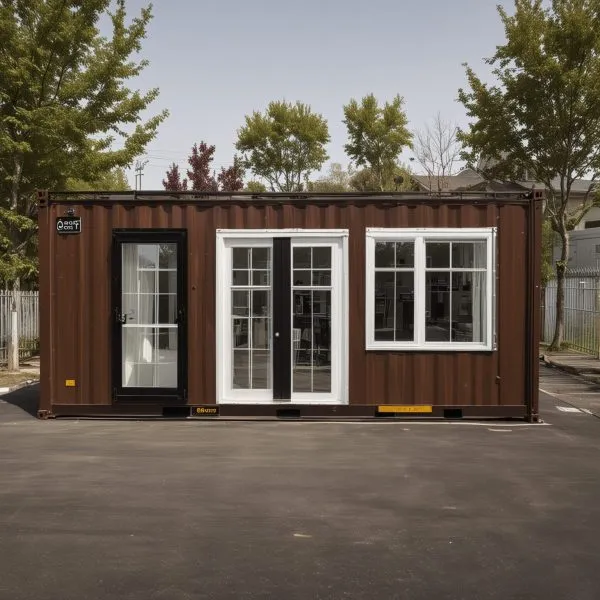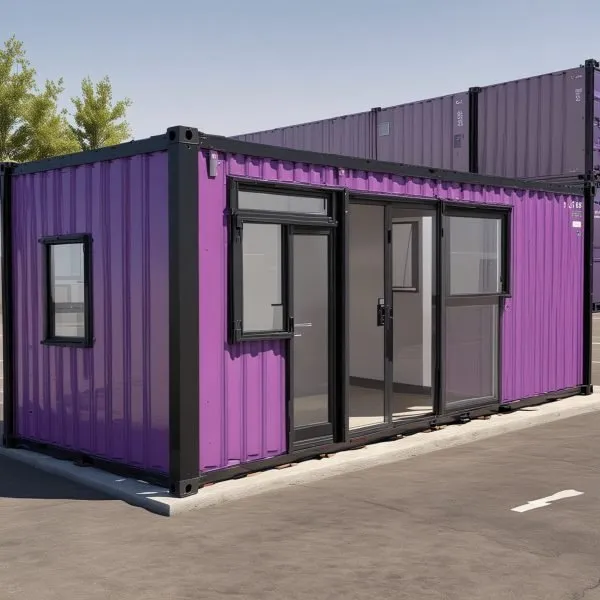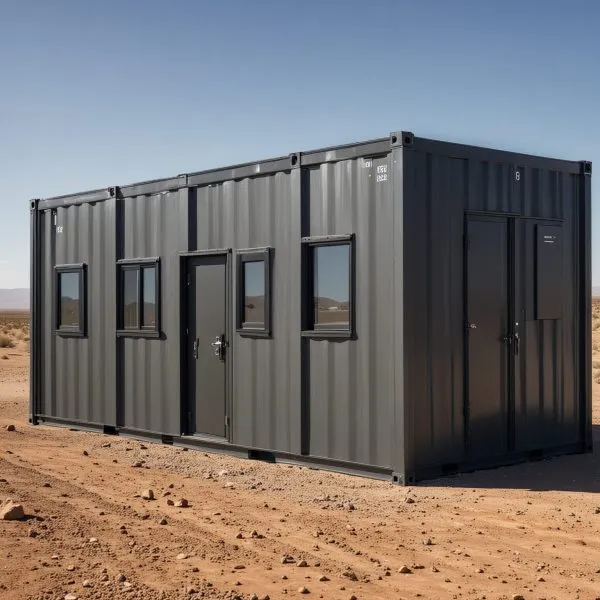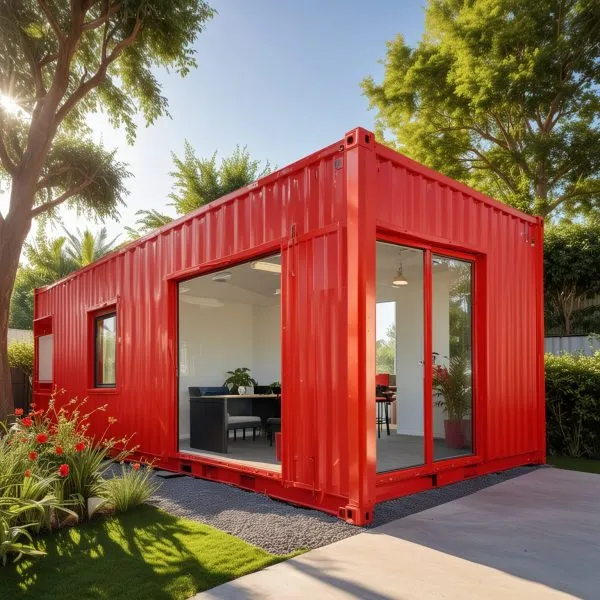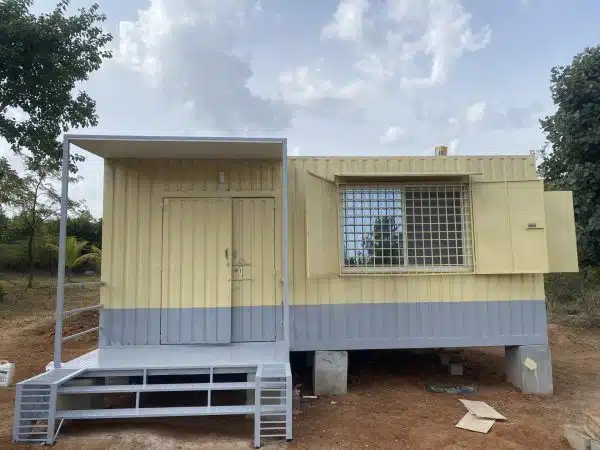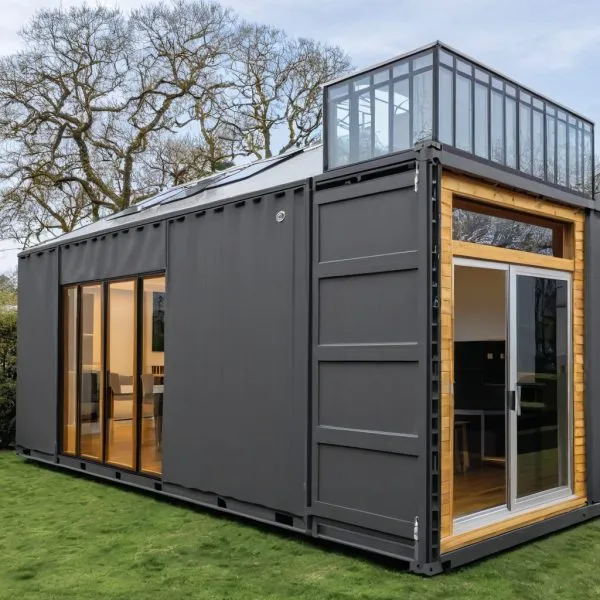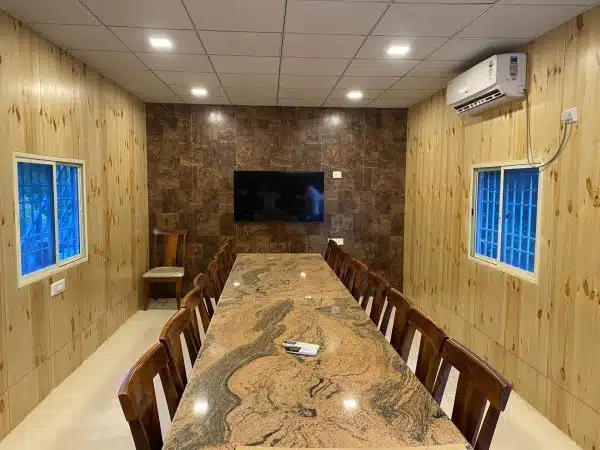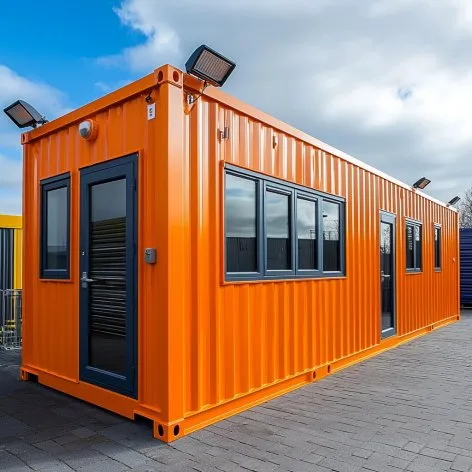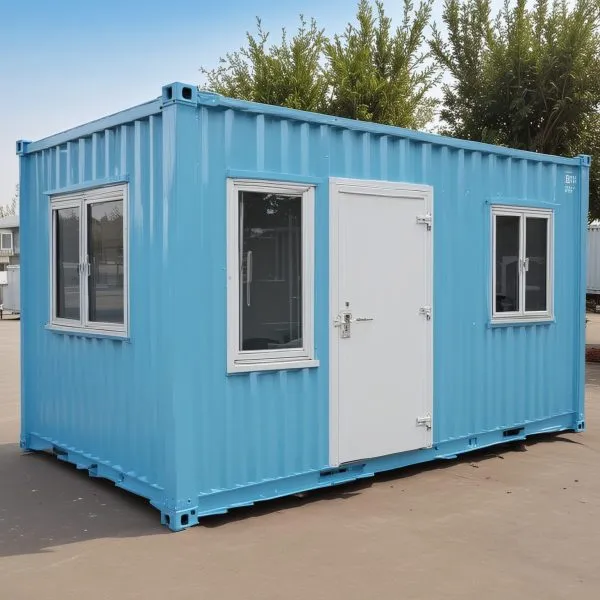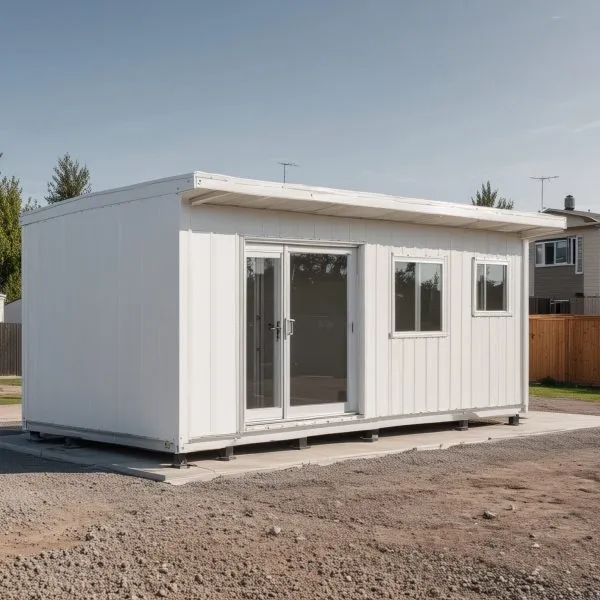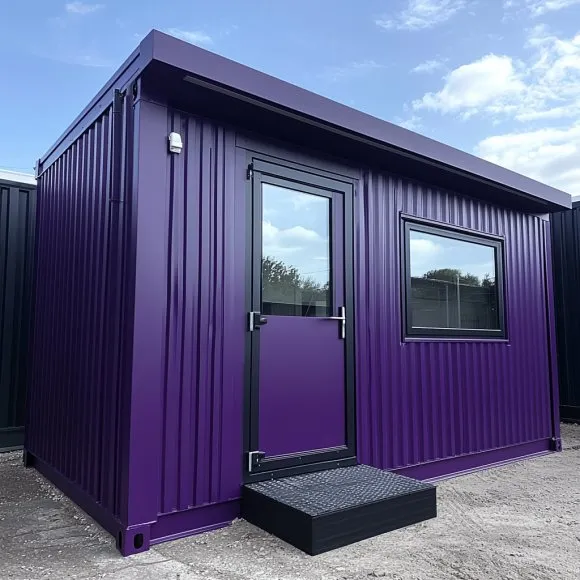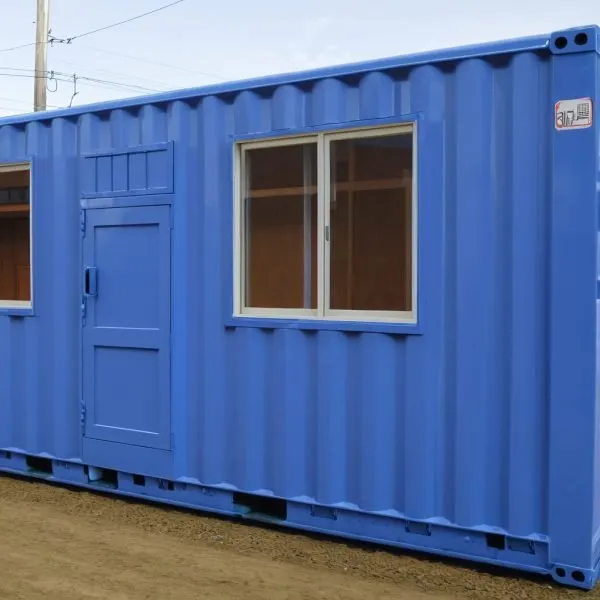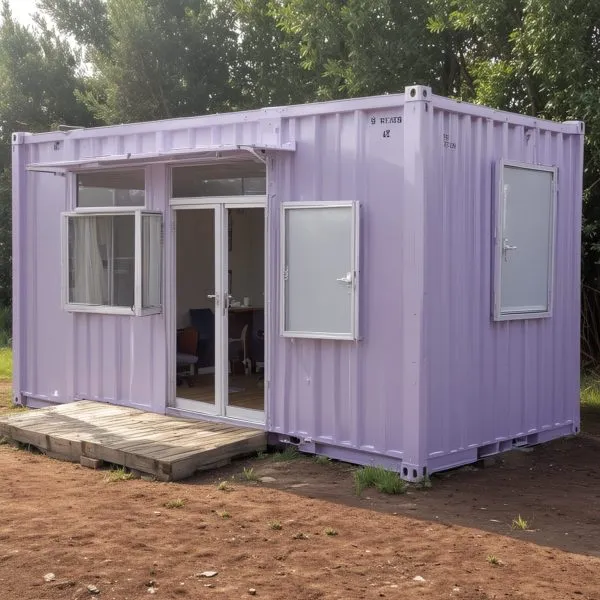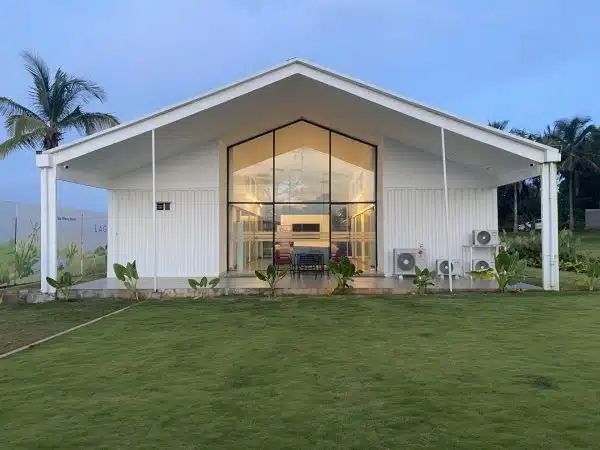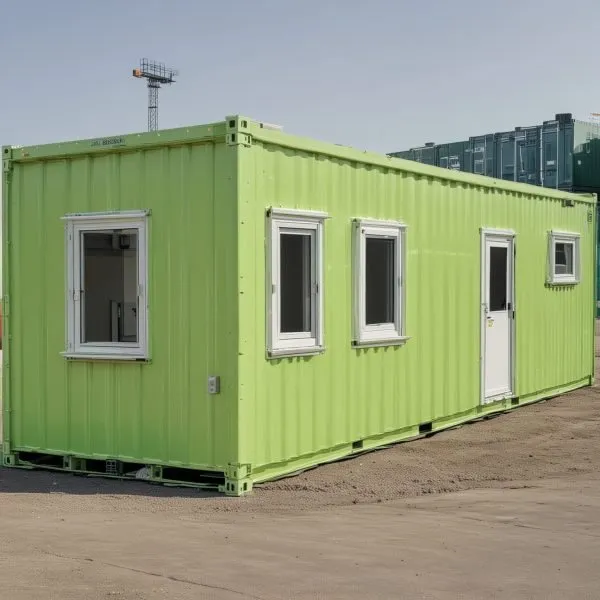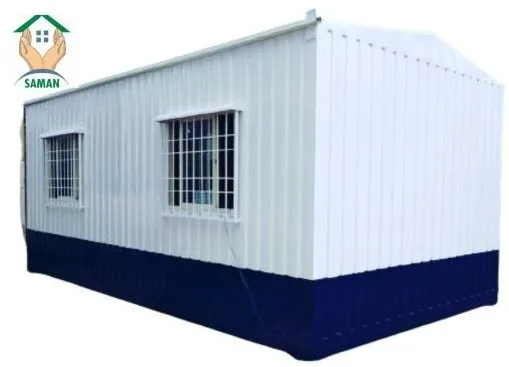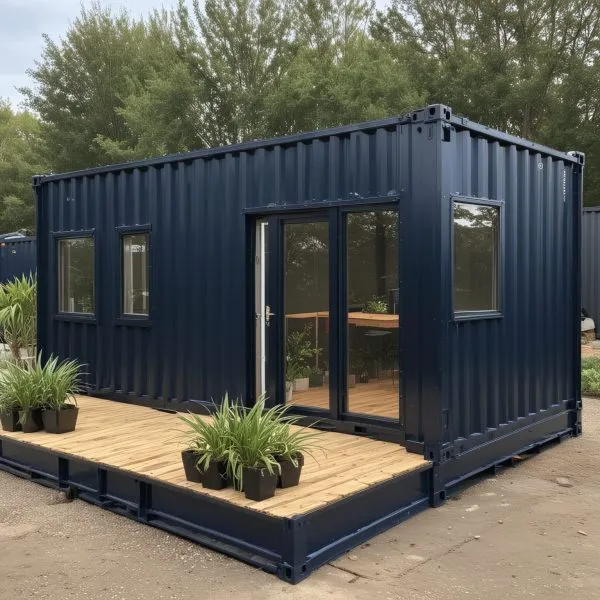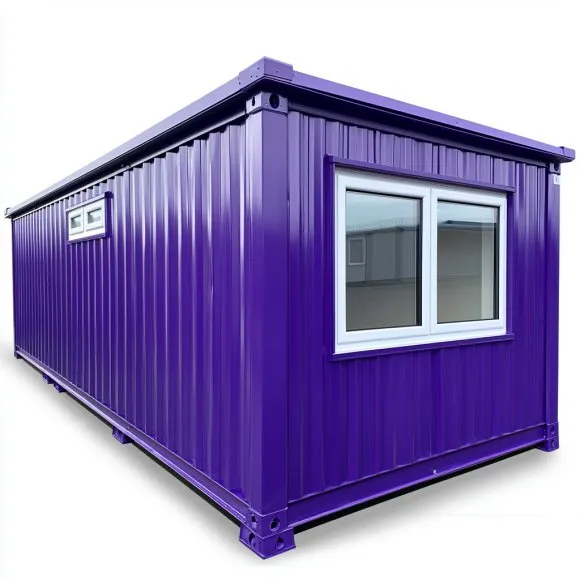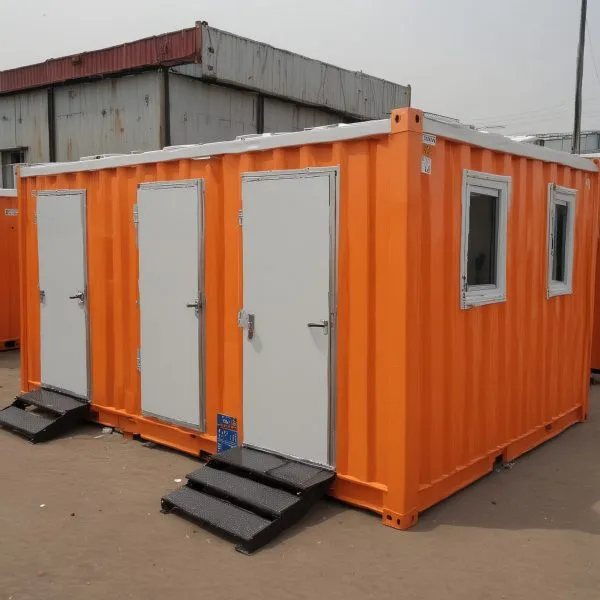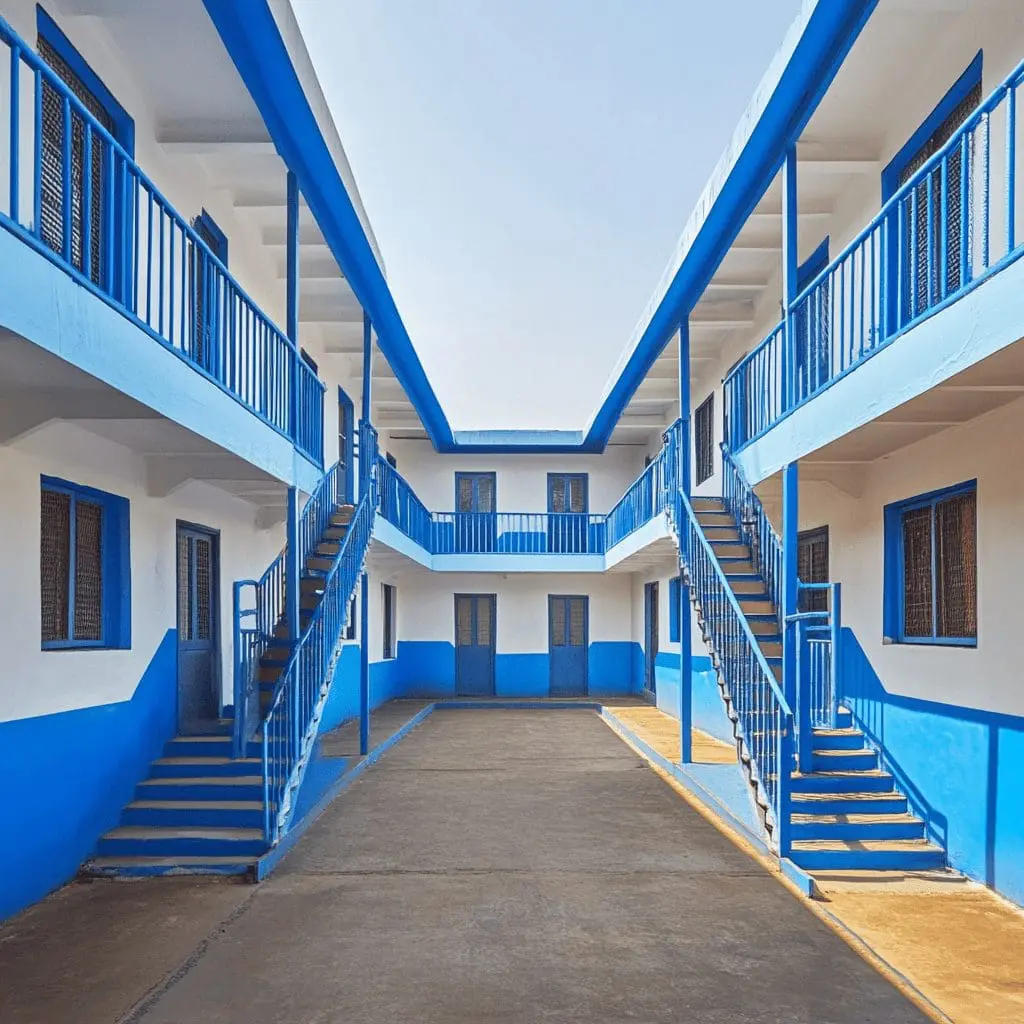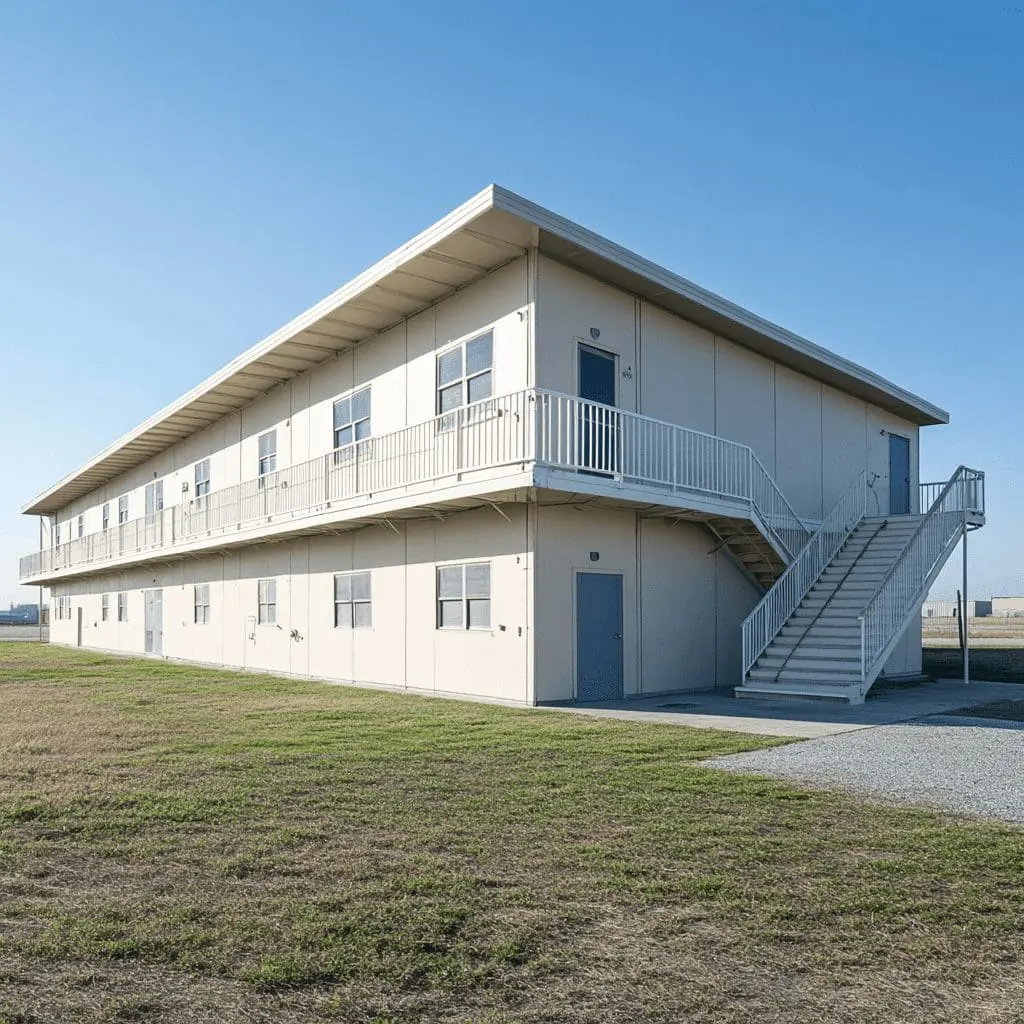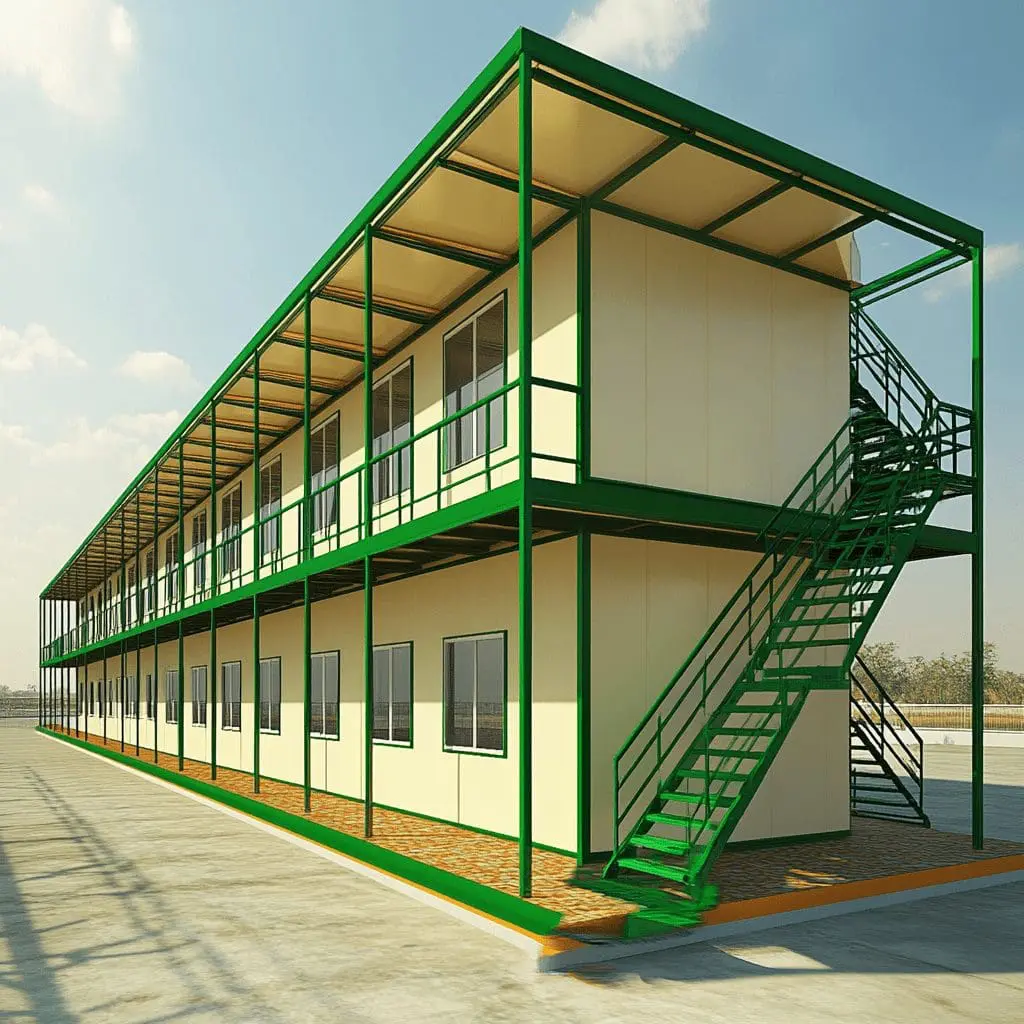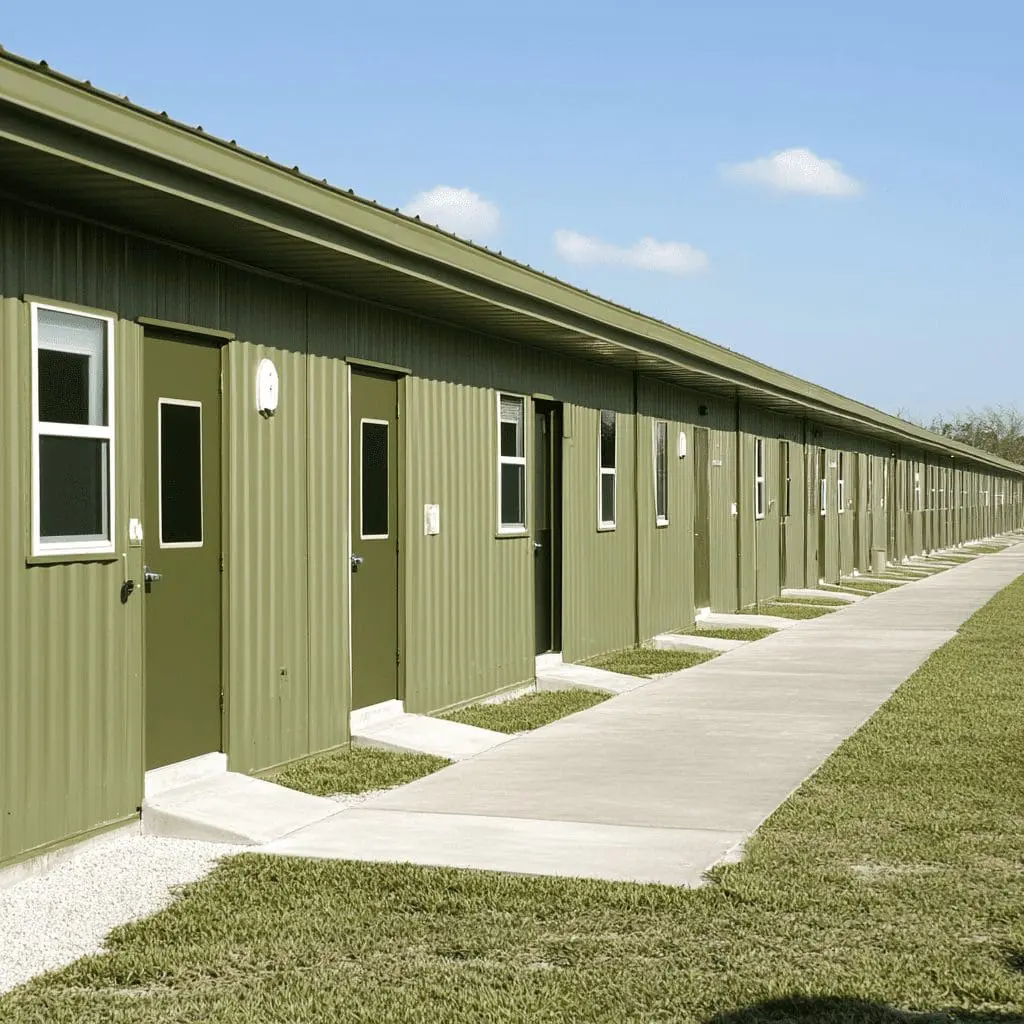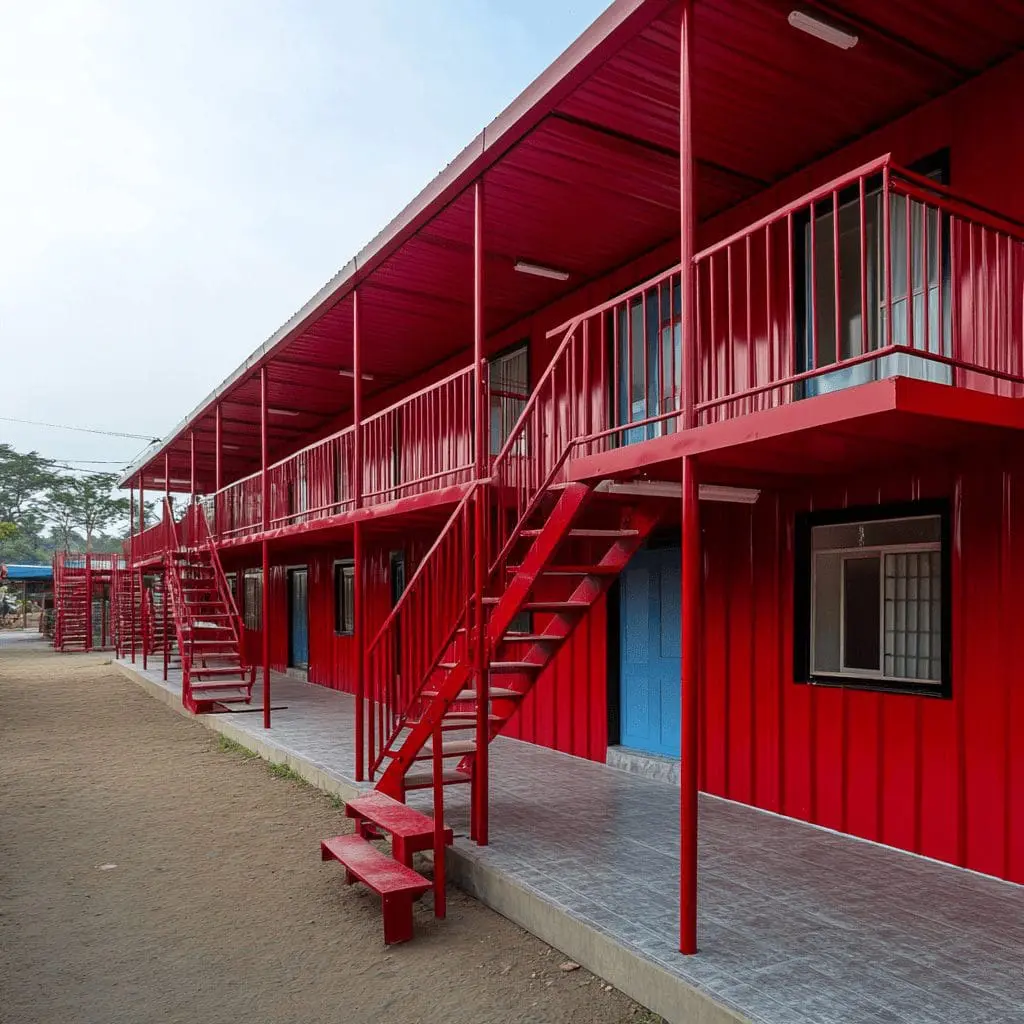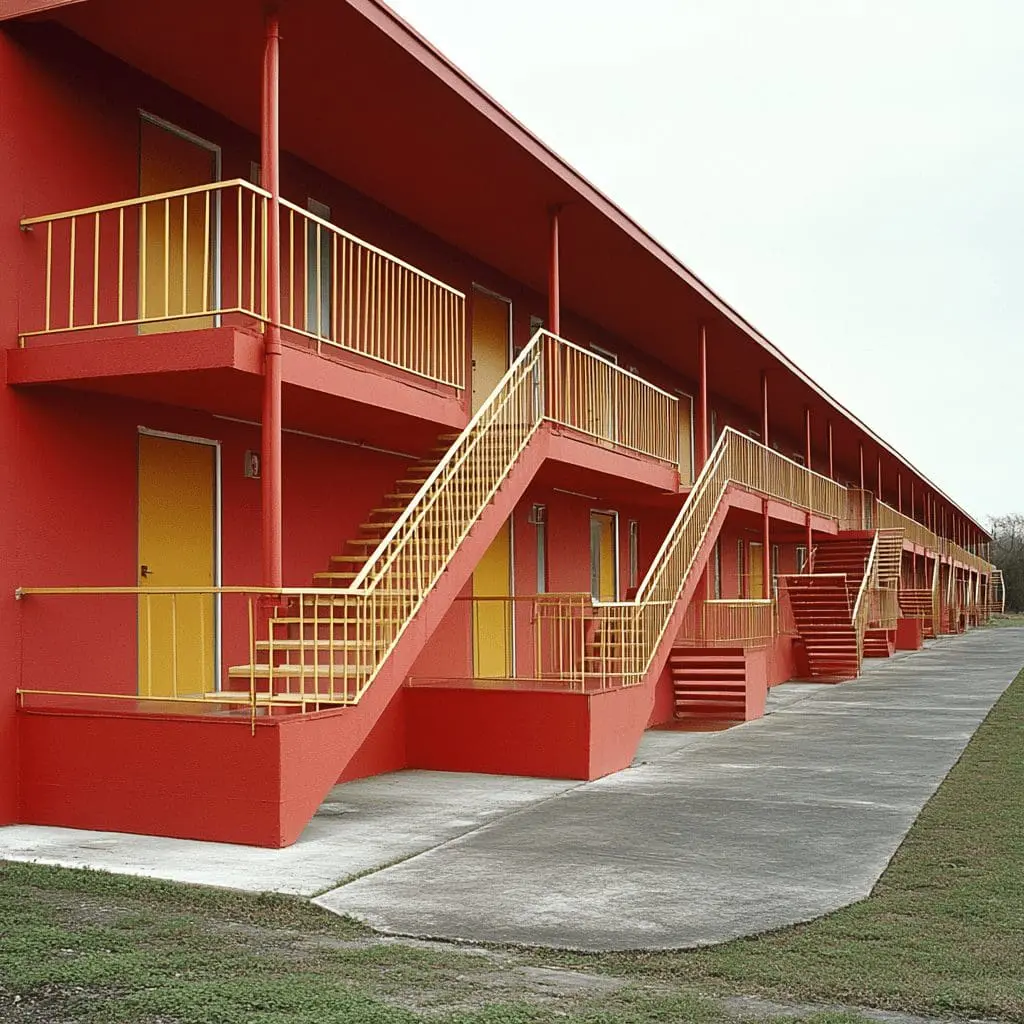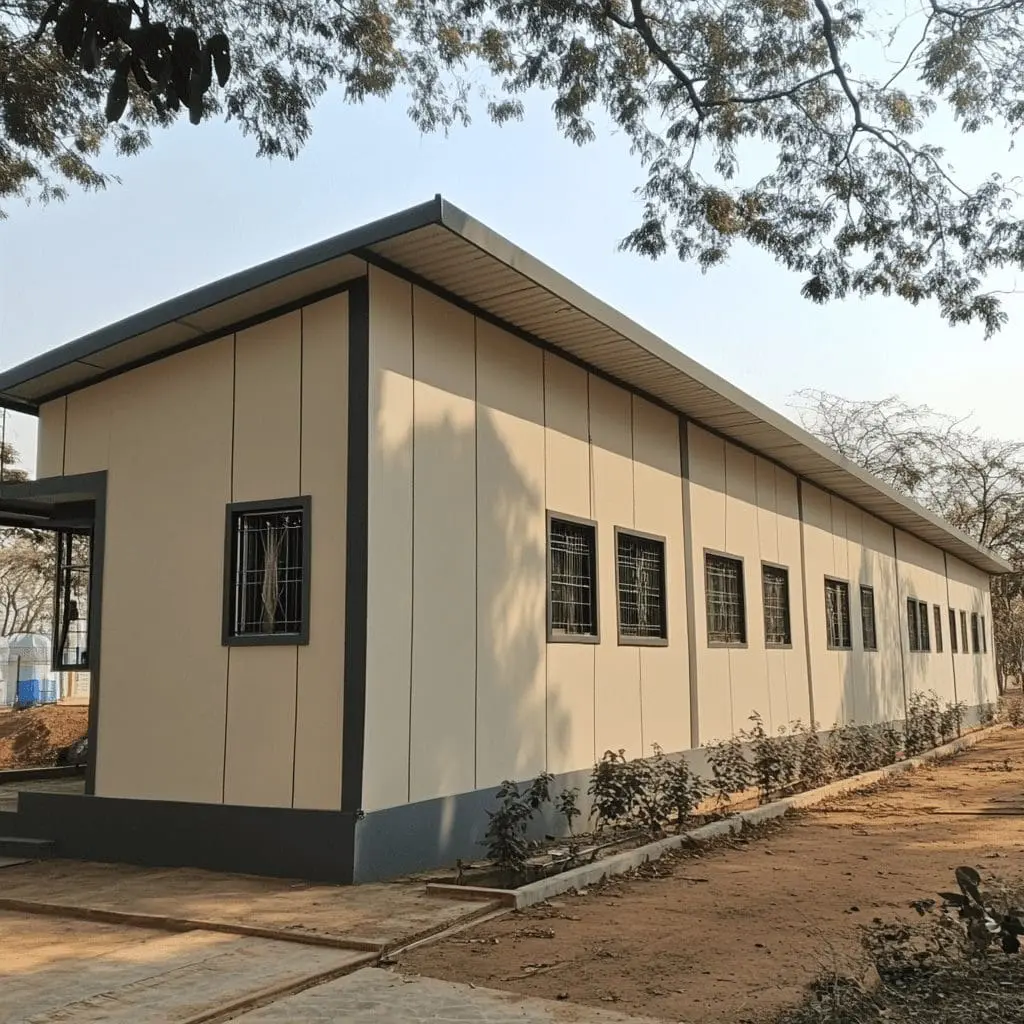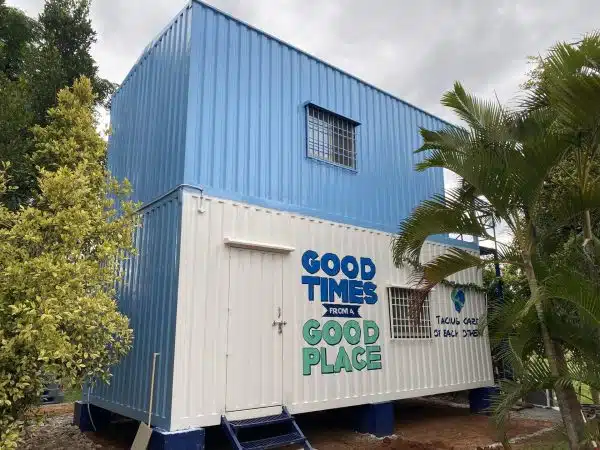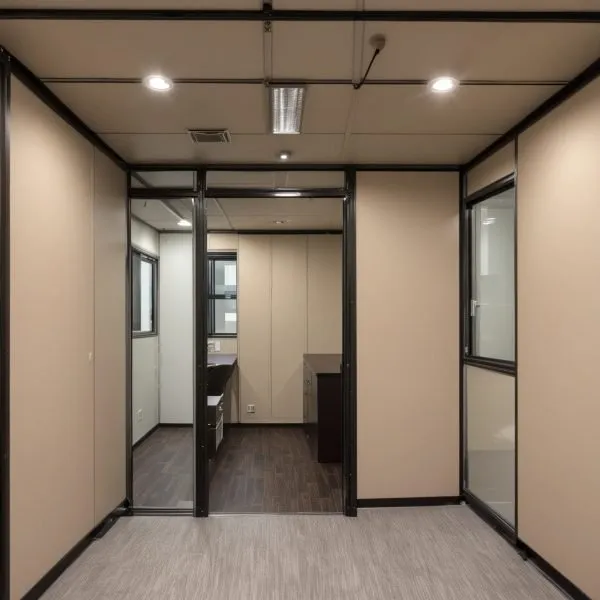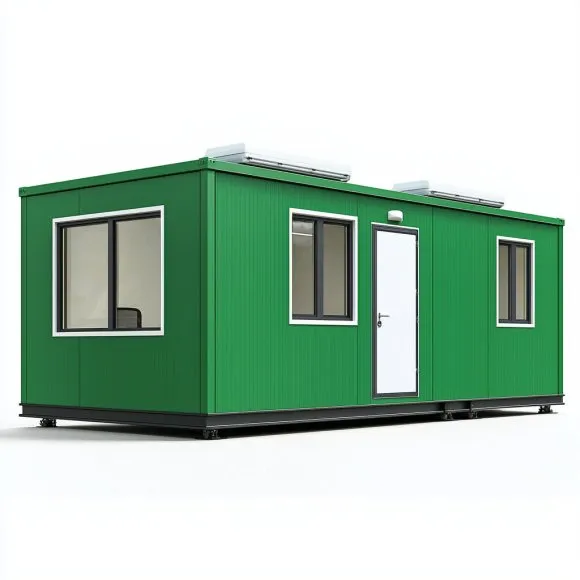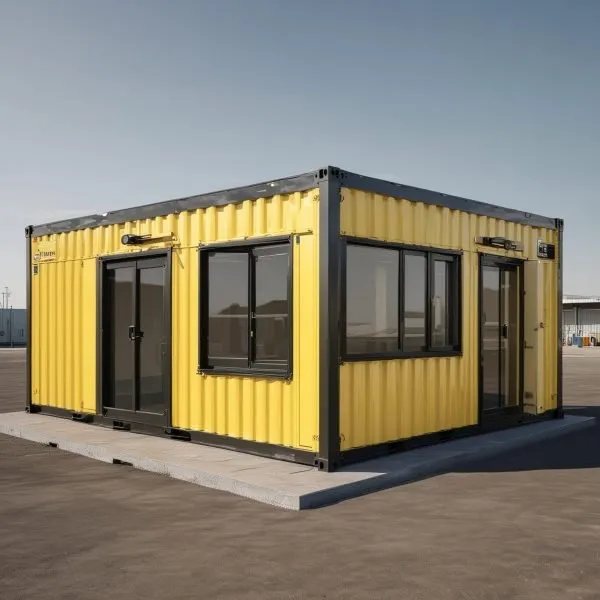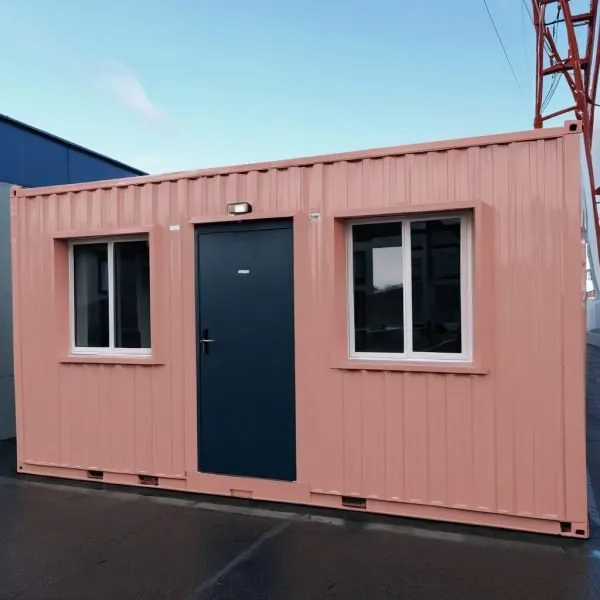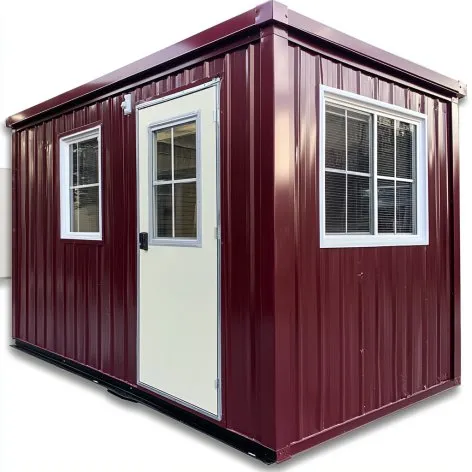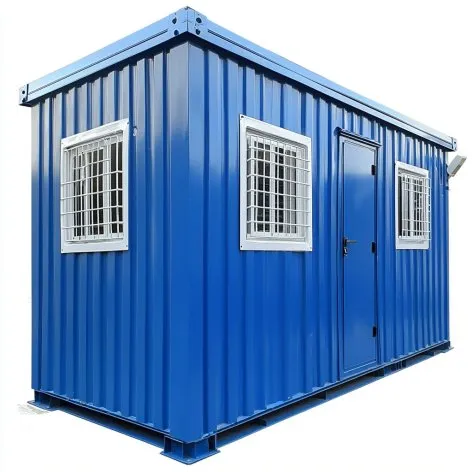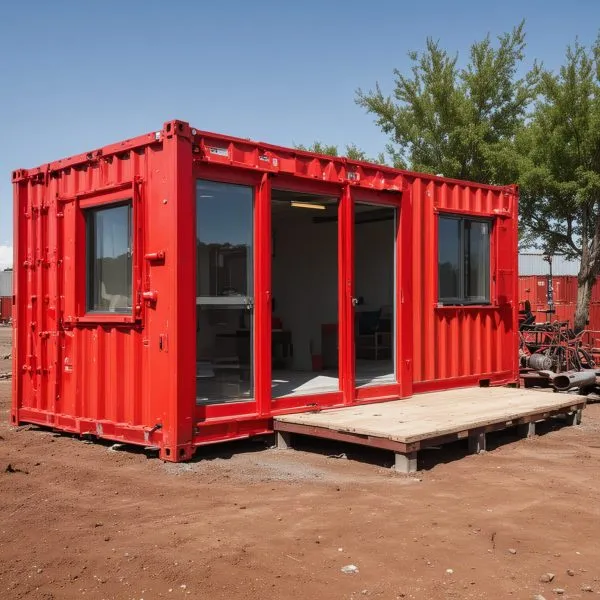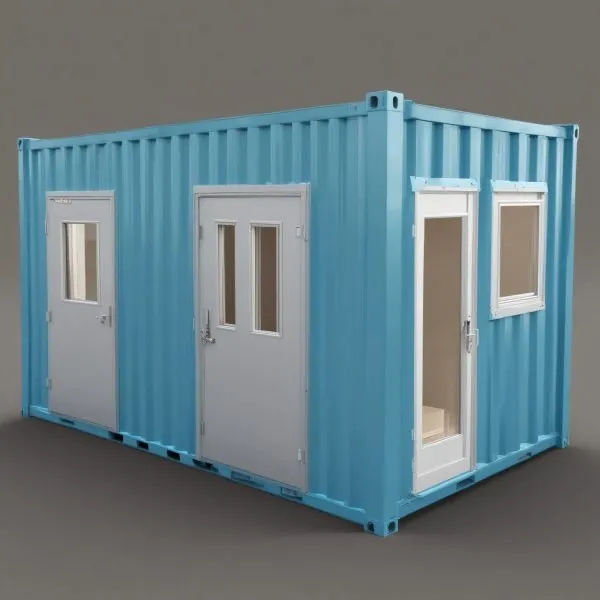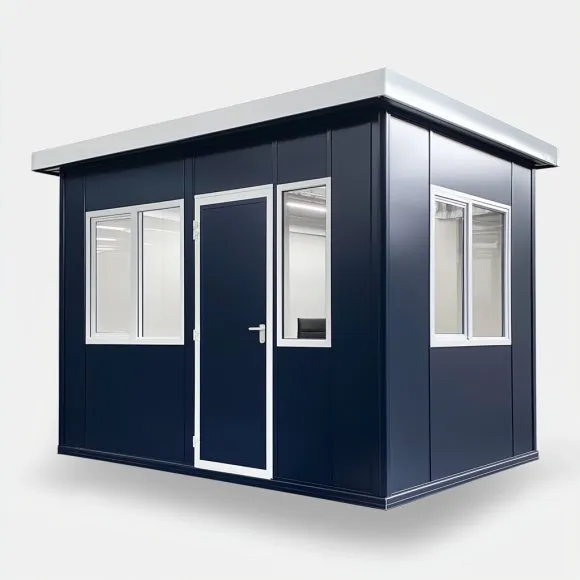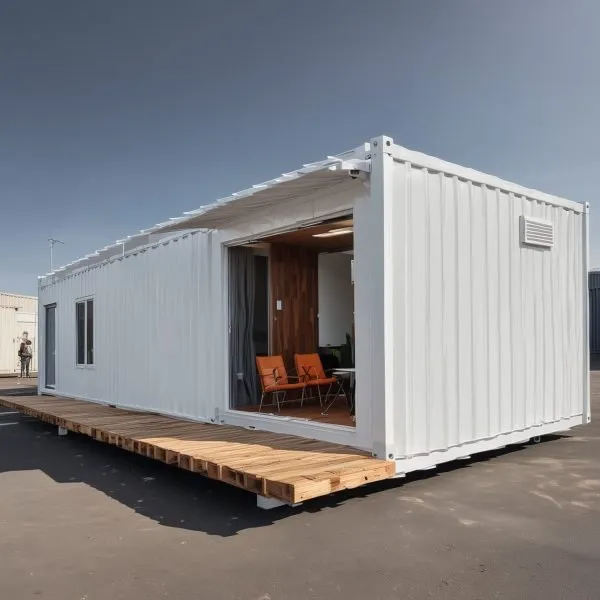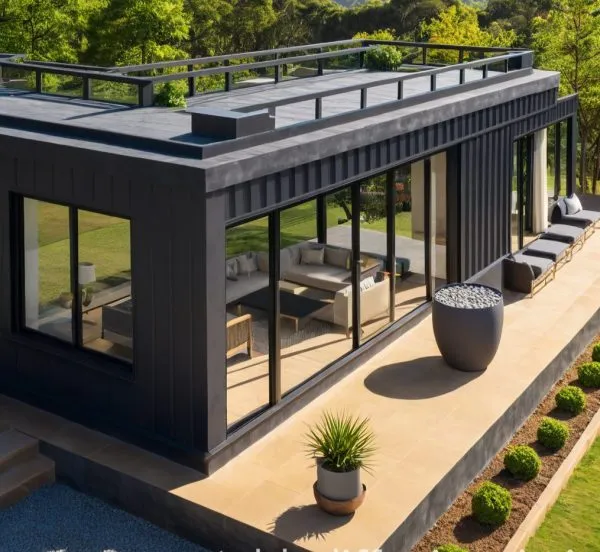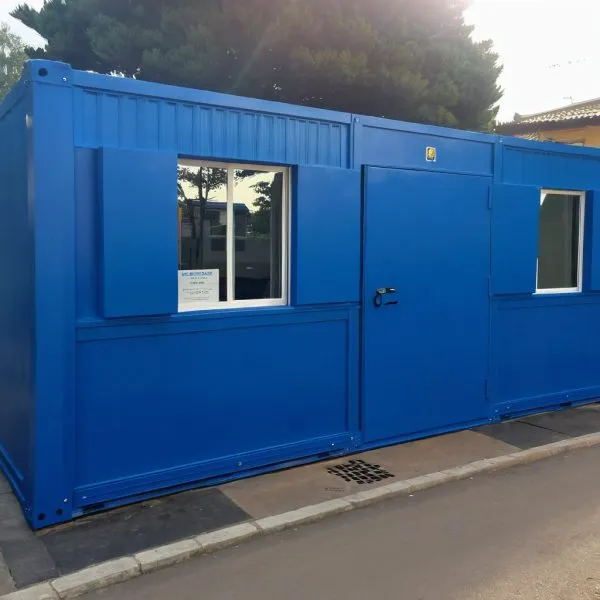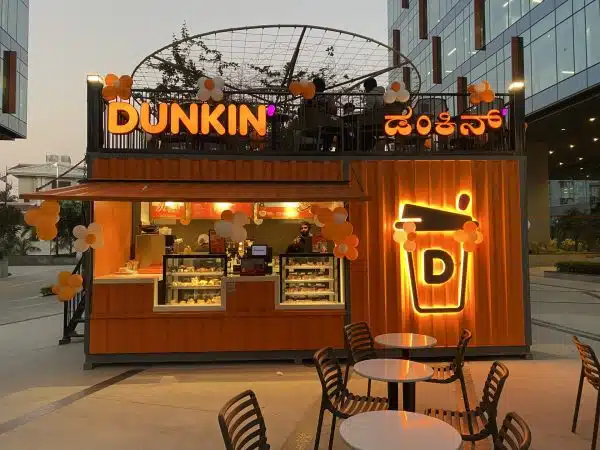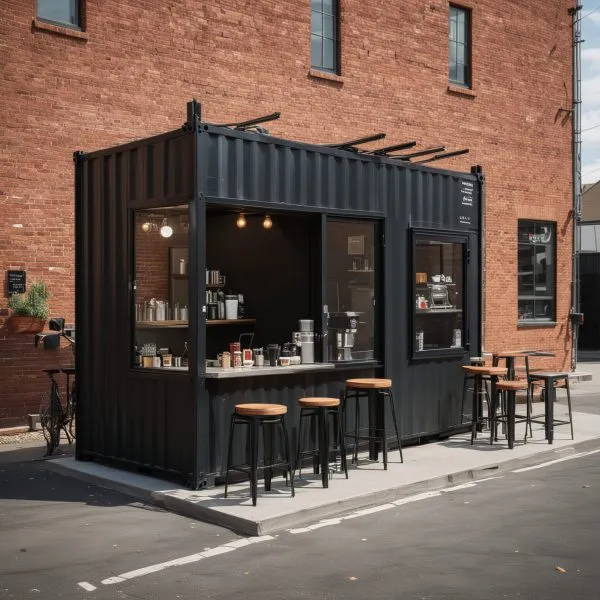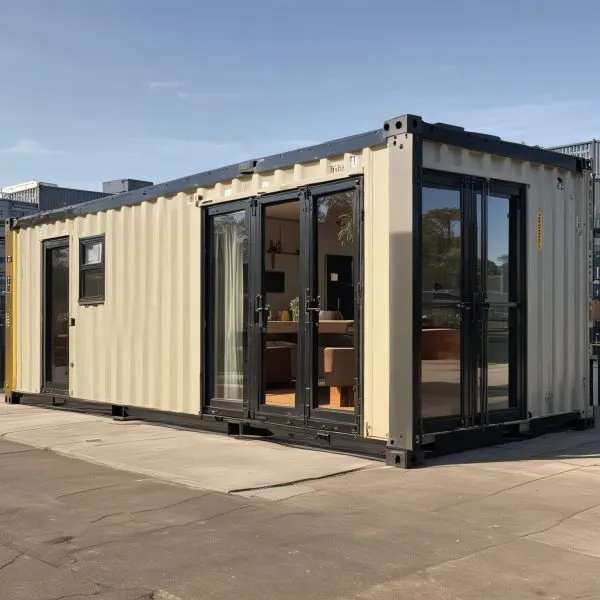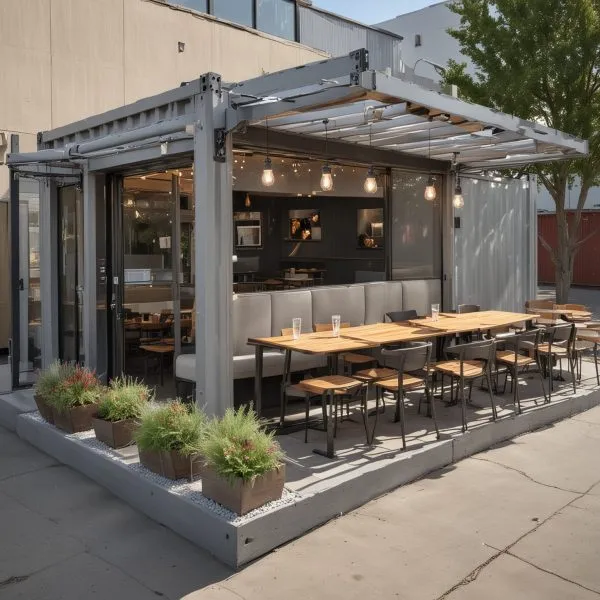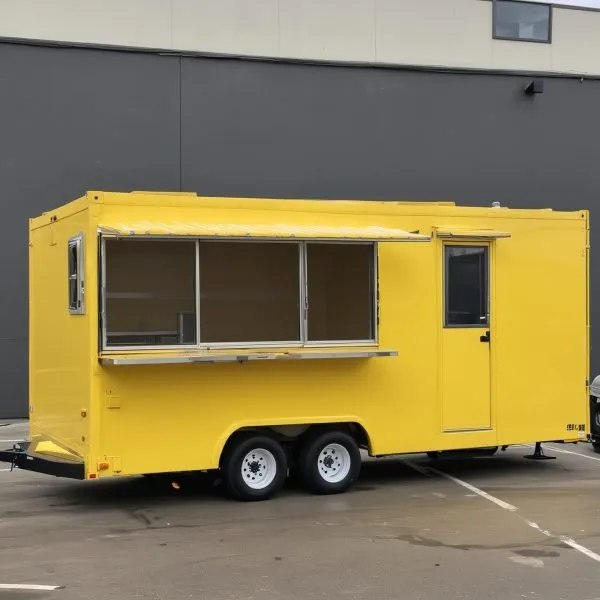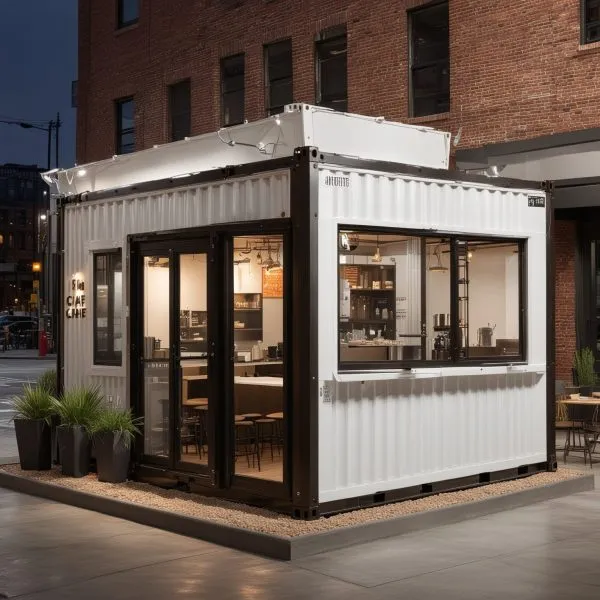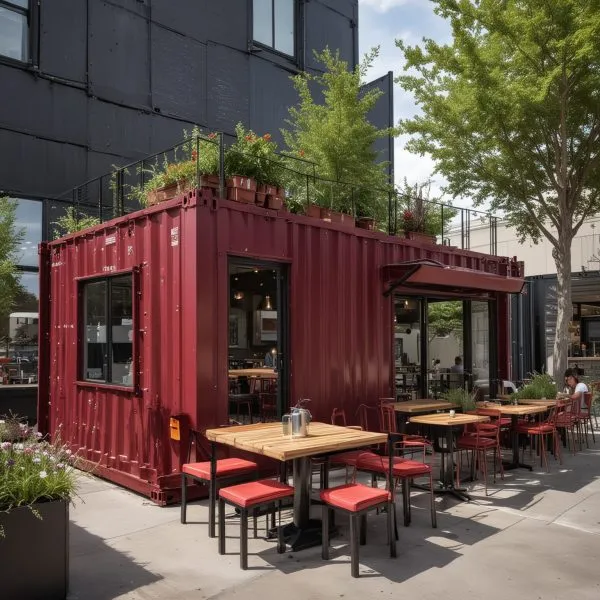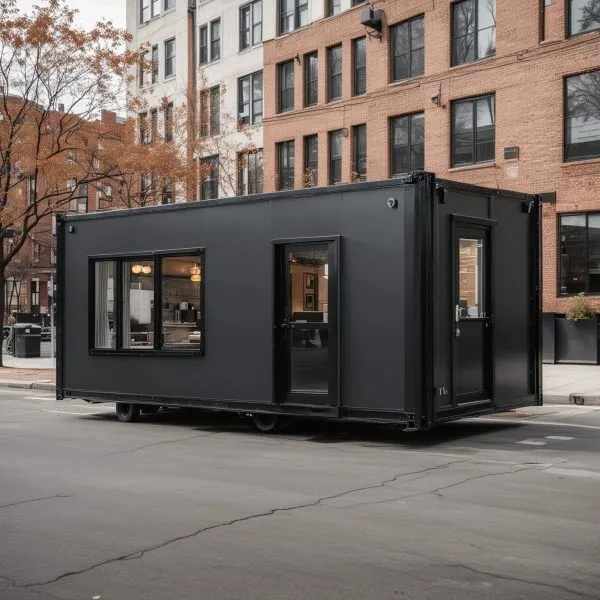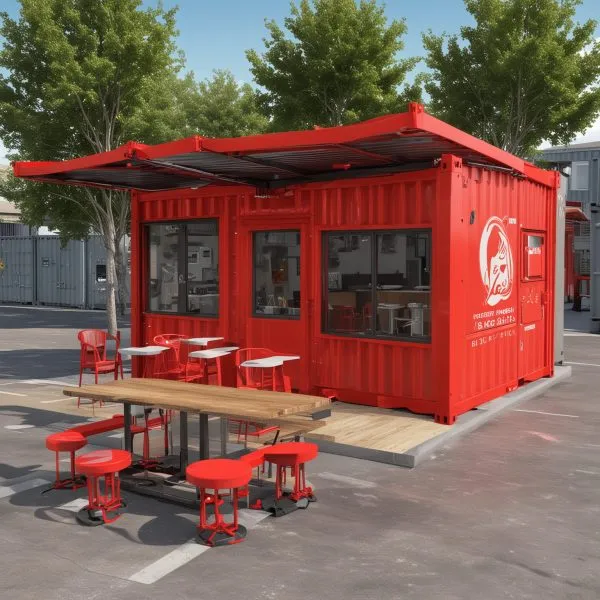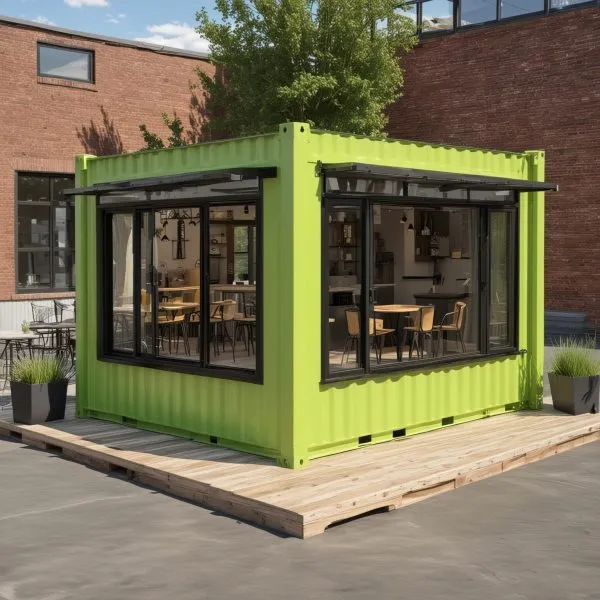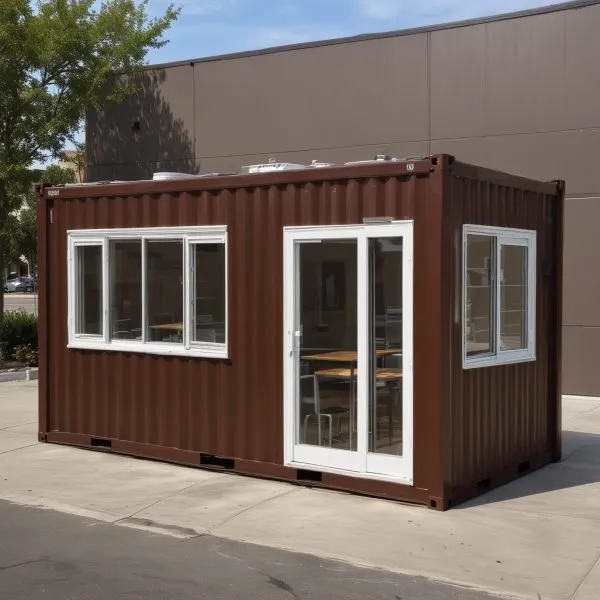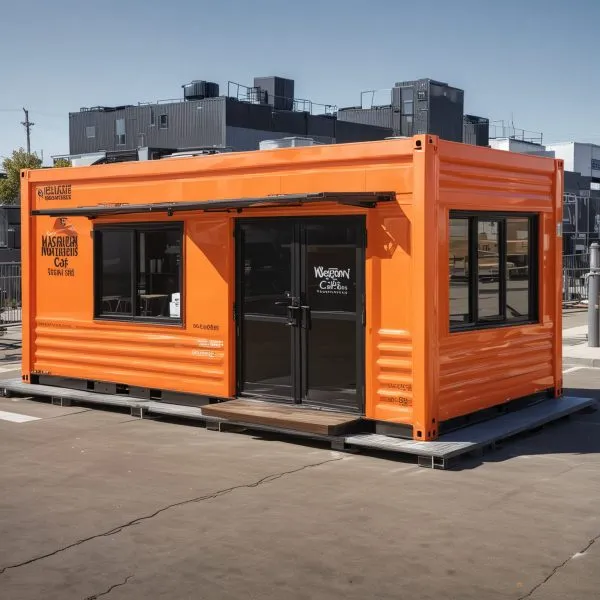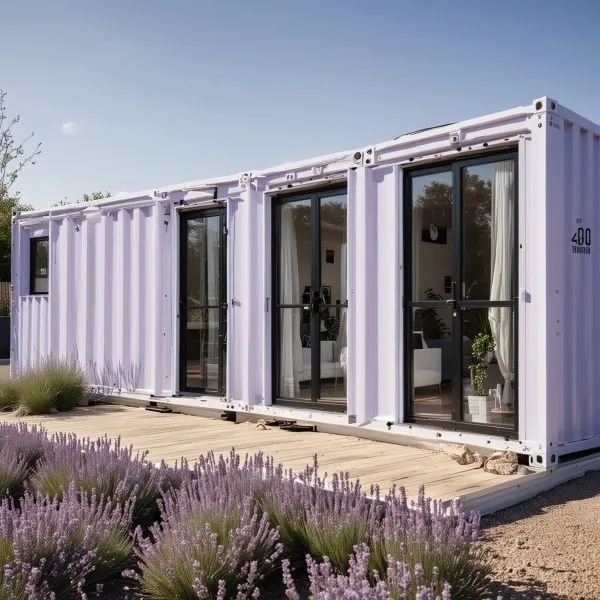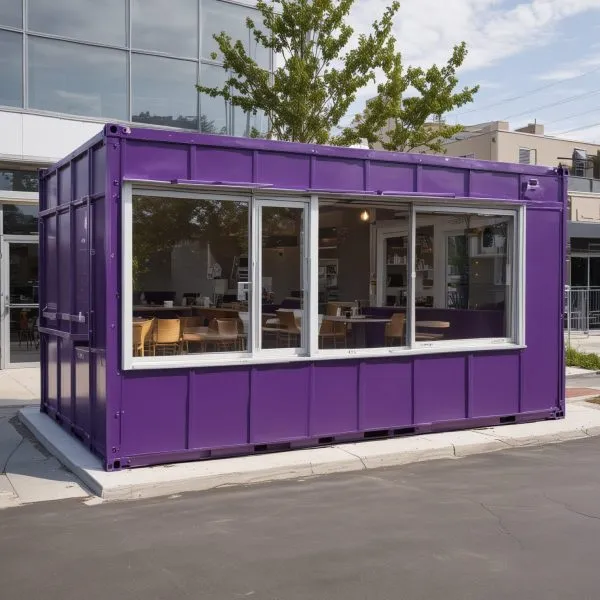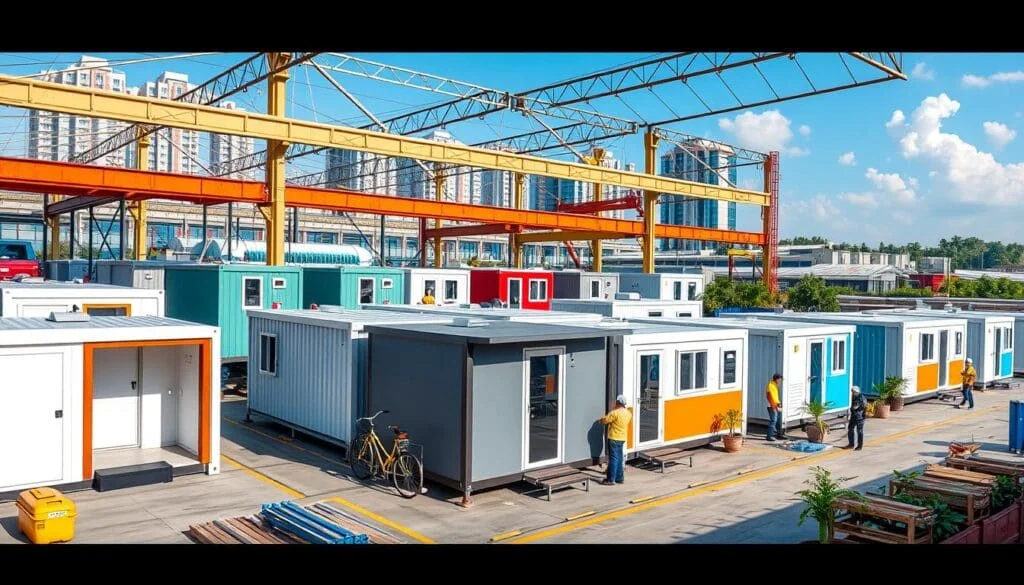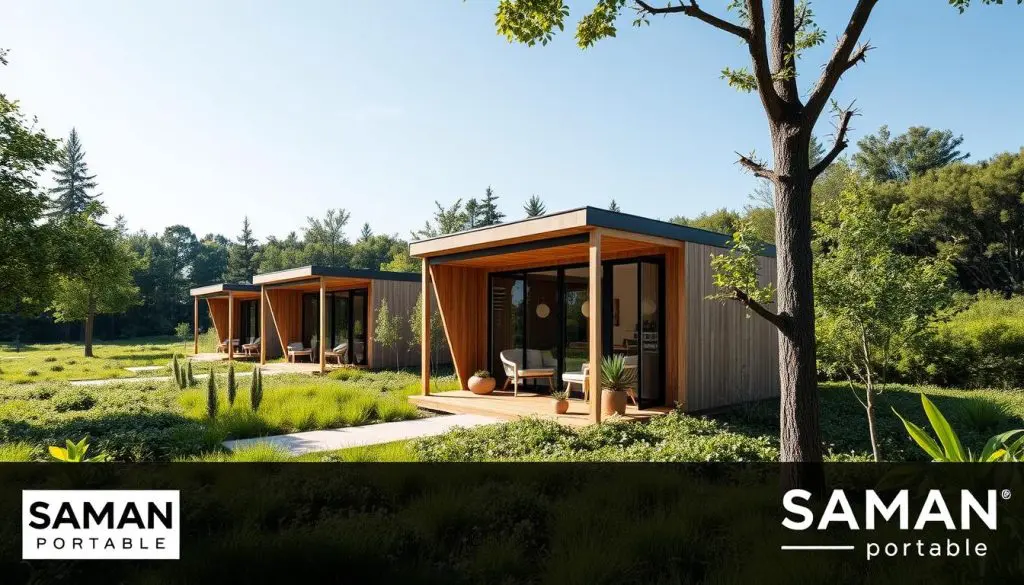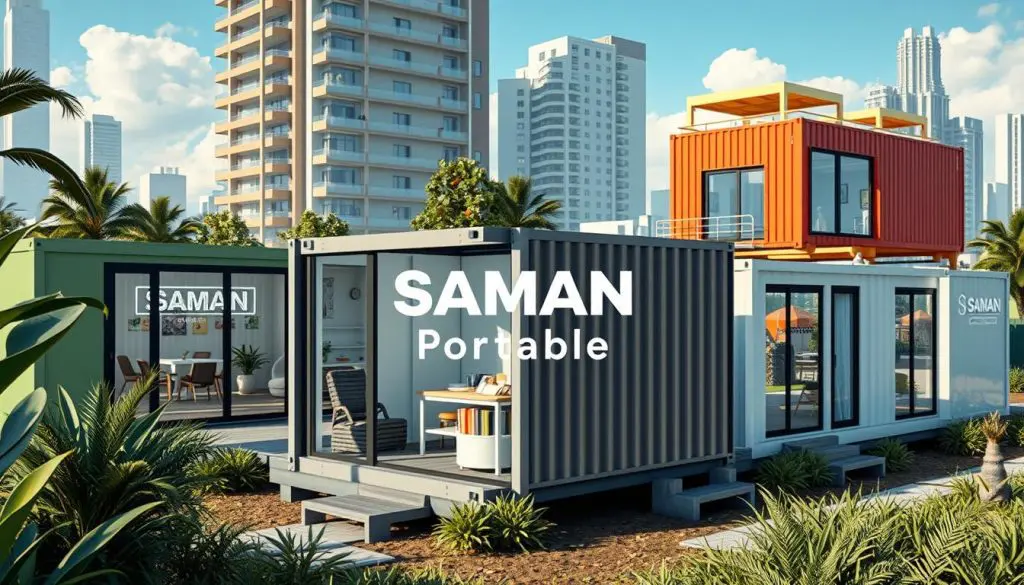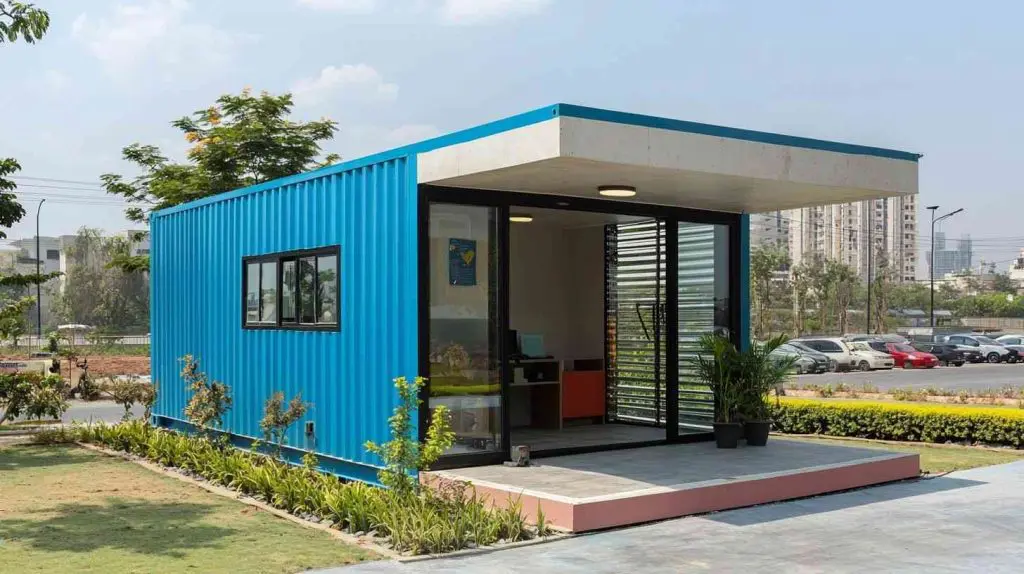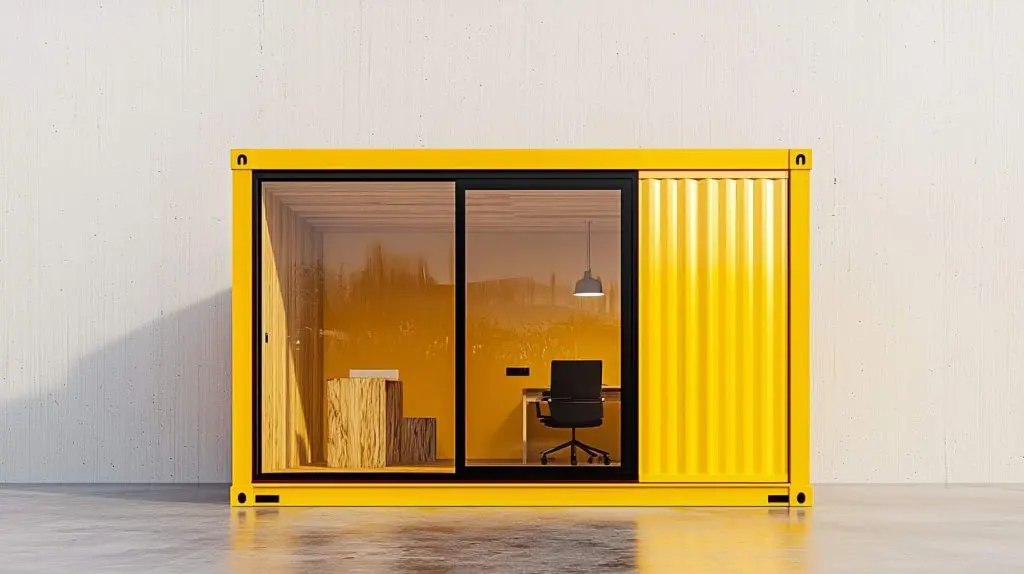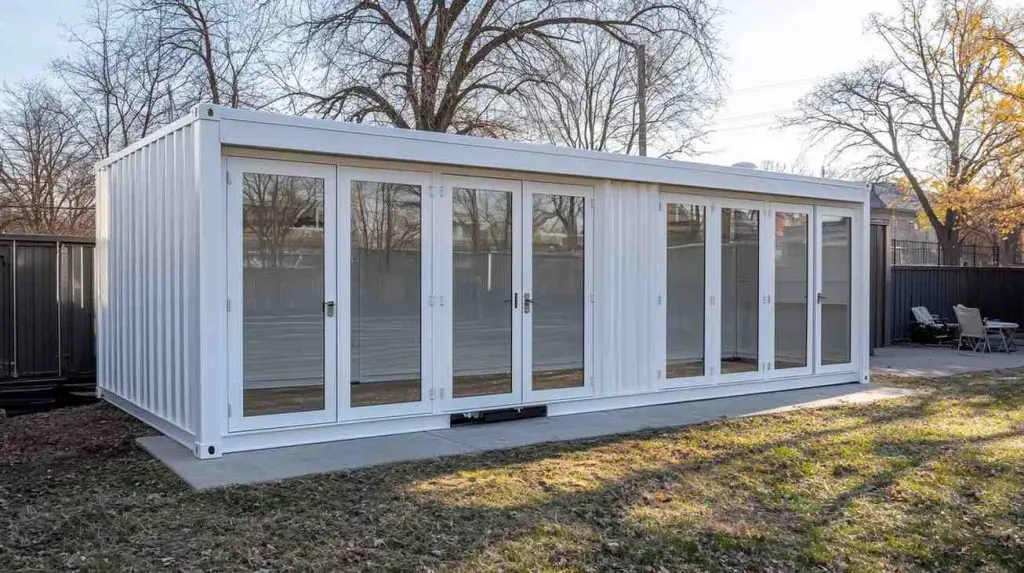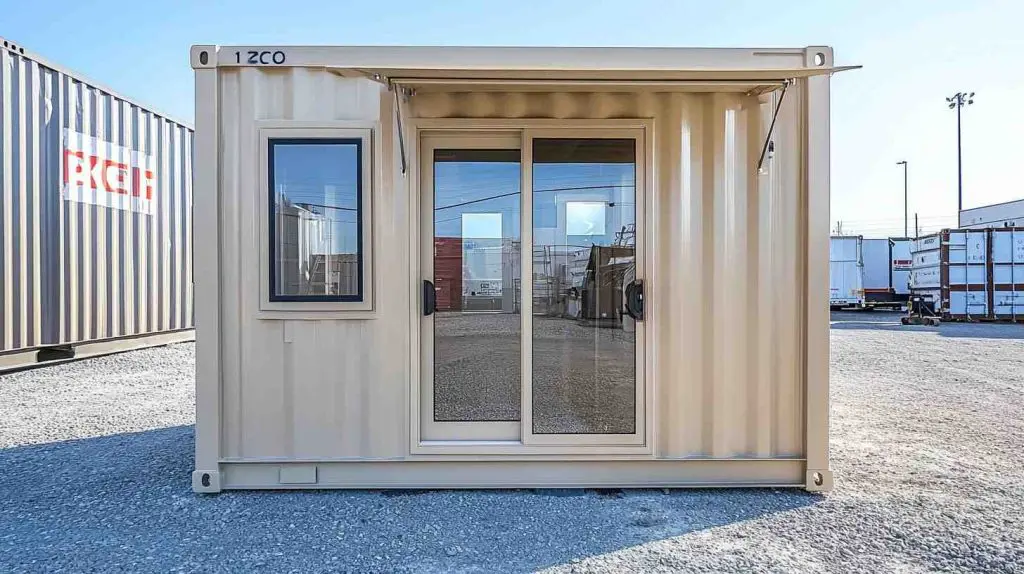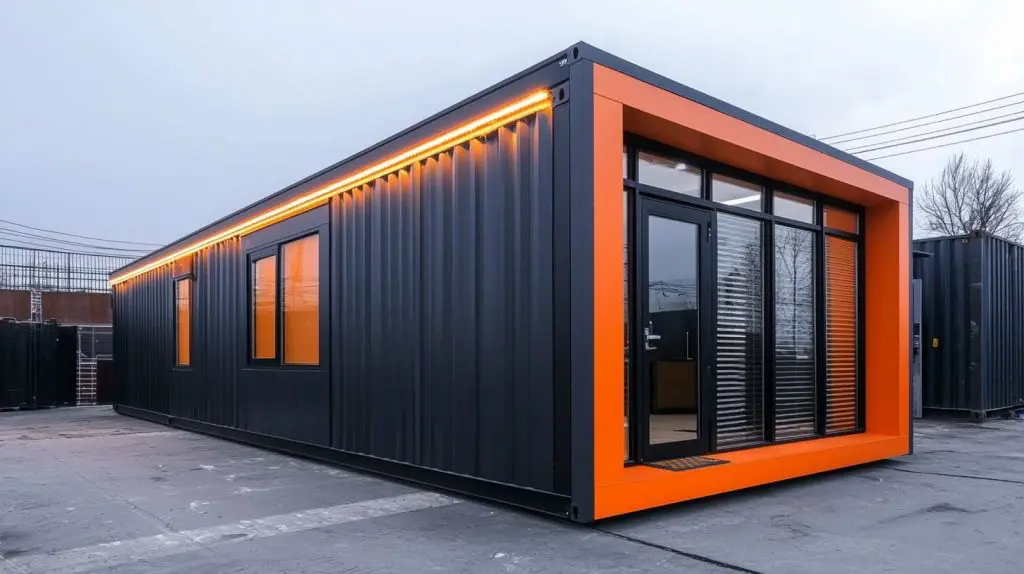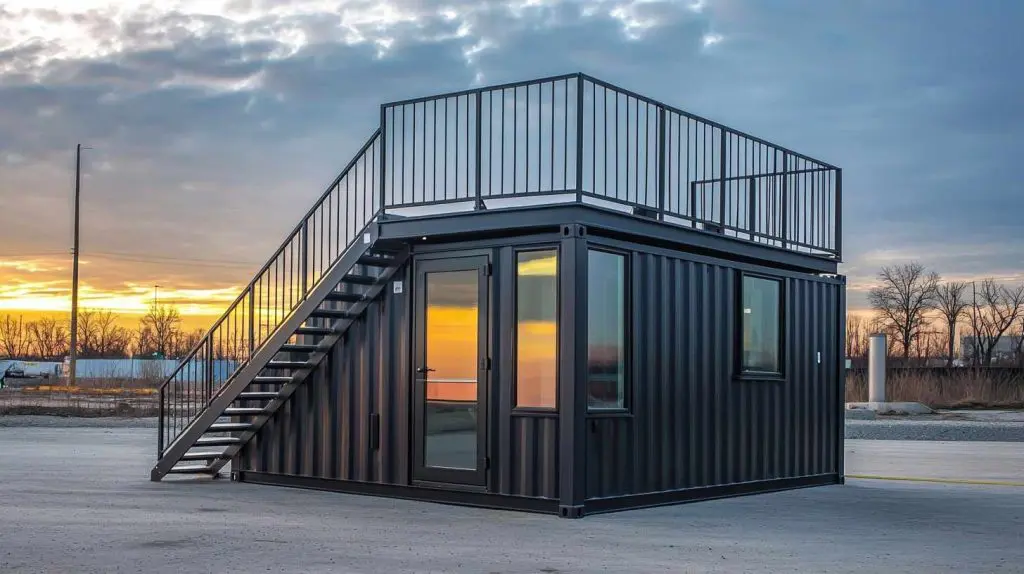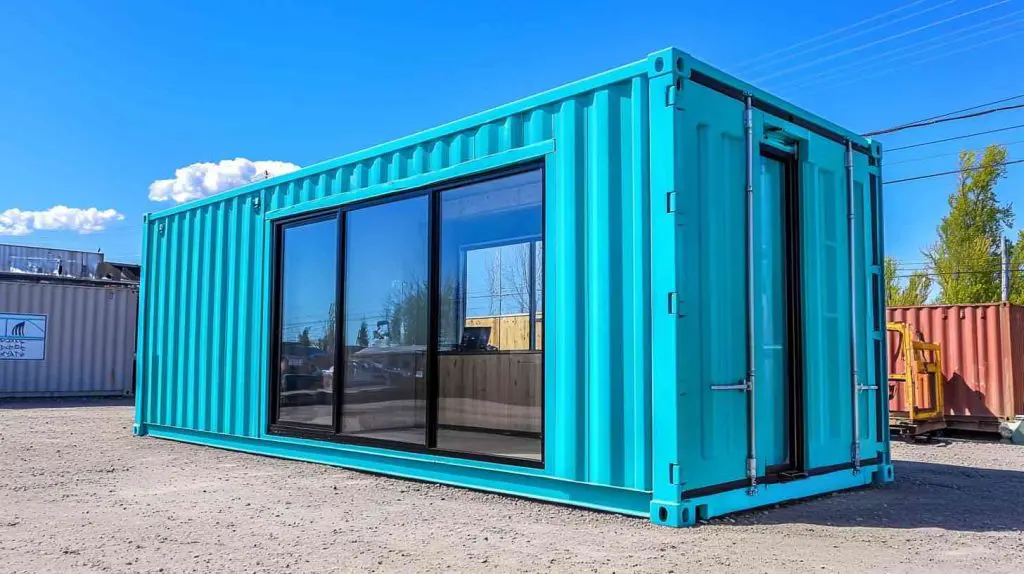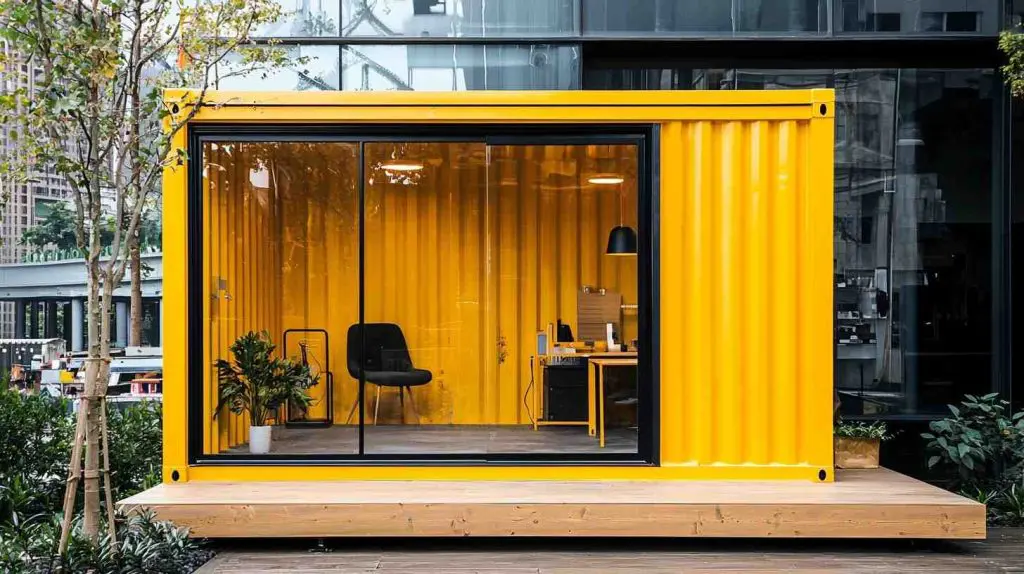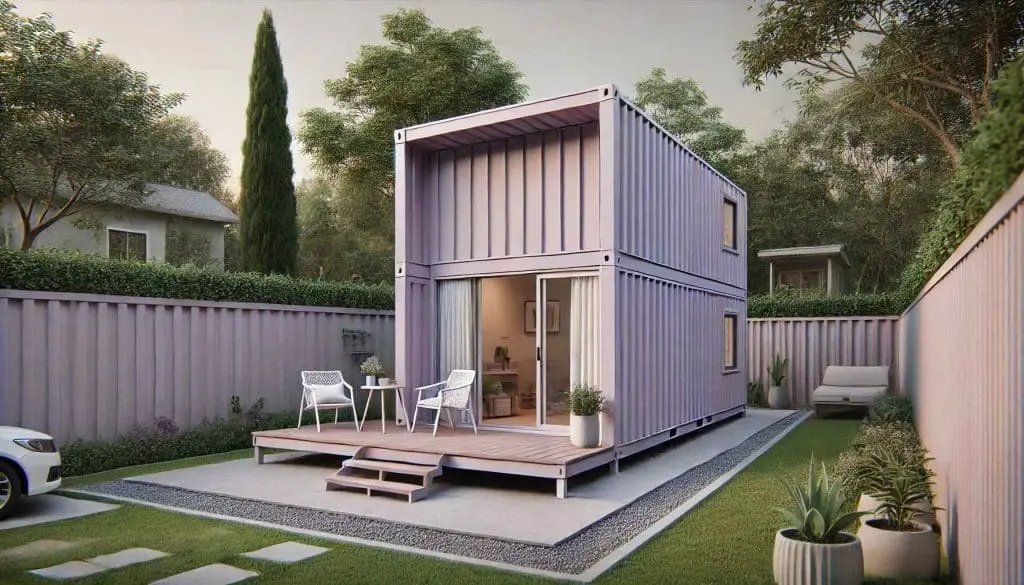The Ultimate Guide to Mobile Log Homes: Blending Rustic Charm with Modern Living
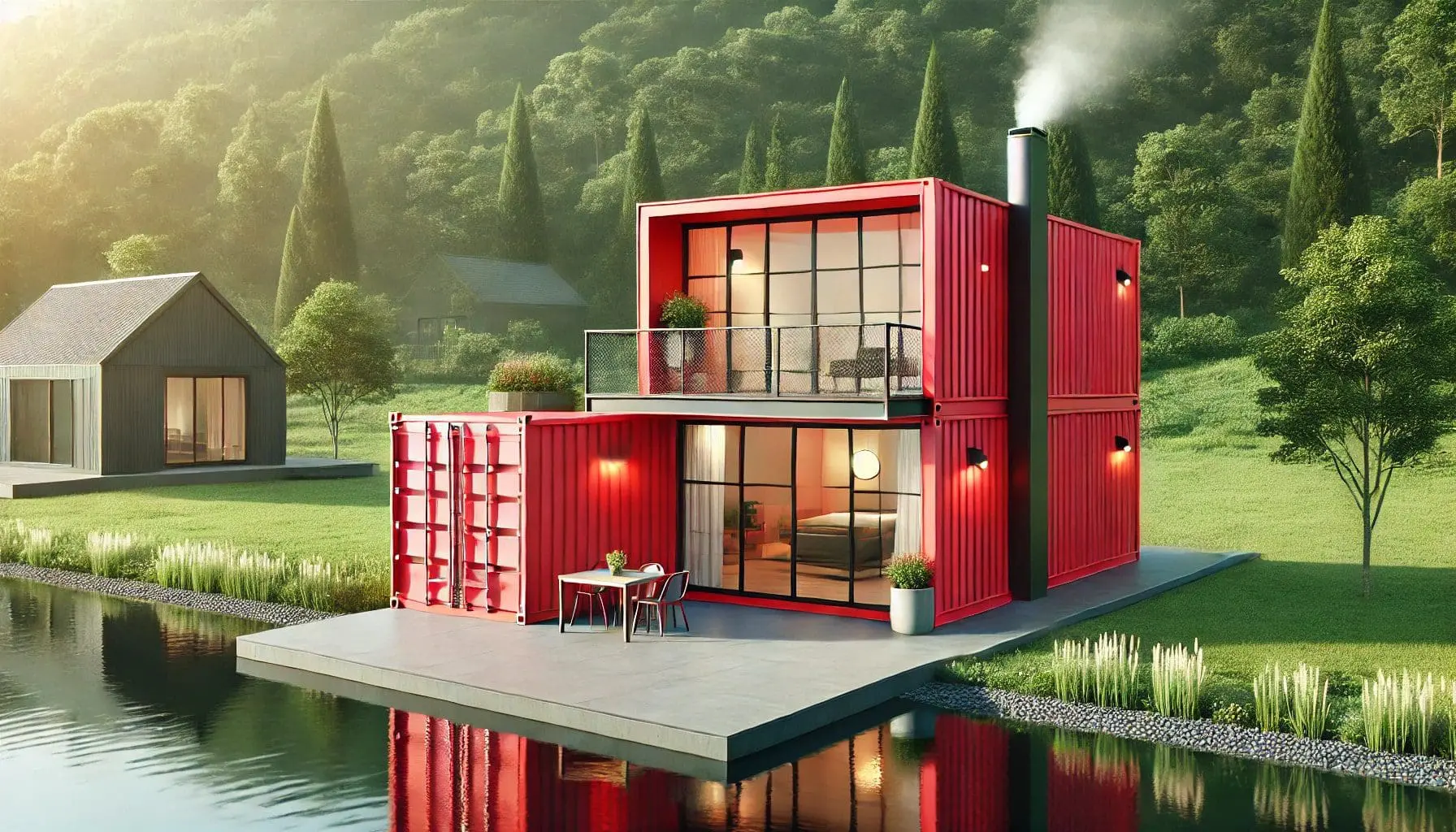
Introduction to Mobile Log Homes
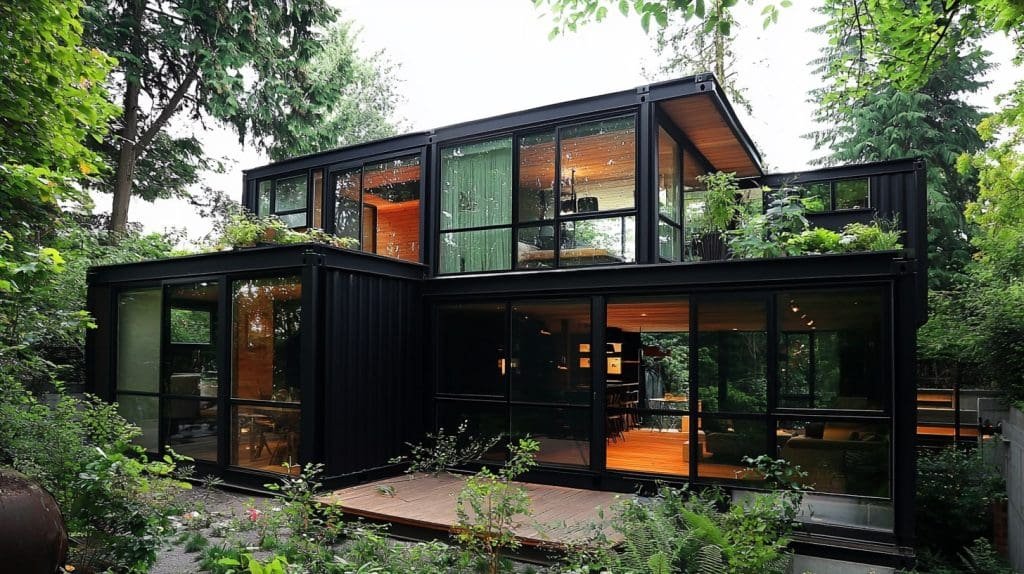
Mobile log homes have surged in popularity, offering a perfect combination of rustic charm and modern convenience. These homes capture the essence of traditional log cabins while providing the flexibility of a mobile home. Ideal for those who dream of a serene, nature-centric lifestyle, mobile log homes are an affordable and practical solution that doesn’t compromise on comfort or style.
These homes are designed with portability in mind, allowing homeowners to relocate with ease. Whether nestled in the heart of a dense forest or perched on a tranquil lakeside, mobile log homes adapt seamlessly to various environments. This versatility makes them an appealing choice for individuals who enjoy change and adventure, or for those who want a seasonal retreat without the permanence of a traditional log cabin.
The Rise of Mobile Log Homes: A Versatile Housing Solution
Mobile log homes stand out for their construction quality. Built using durable wood that emulates the classic log cabin look, these homes ensure long-lasting performance. The natural insulation properties of wood provide energy efficiency, keeping interiors warm in winter and cool in summer. Additionally, modern construction techniques have enhanced the eco-friendliness of these homes, making them a sustainable living choice.
Affordability is another major draw. Unlike traditional log cabins, mobile log homes are often more cost-effective, both in terms of initial investment and ongoing maintenance. This financial accessibility has widened their appeal, drawing in a diverse range of homeowners, from young families to retirees seeking a simpler lifestyle.
As we explore the different facets of mobile log homes in this guide, you’ll discover a wealth of options and insights. Whether you’re considering a small, cozy retreat or a larger family home, the versatility and appeal of mobile log homes are unmatched. For those ready to delve deeper into the possibilities, exploring the variety of porta cabins available on porta cabins will provide valuable inspiration and practical options. This resource is an essential starting point for anyone considering the leap into the mobile log home lifestyle, offering a comprehensive look at the innovative solutions available.
The Versatility of Mobile Home Log Cabins
Mobile home log cabins are celebrated for their remarkable versatility, making them a top choice for a wide range of homeowners. These structures blend the classic aesthetic of log cabins with the modern practicality of mobile homes, providing a unique and adaptable living solution. Their flexibility extends beyond just mobility; it also encompasses design, functionality, and lifestyle adaptability.
One of the key advantages of mobile home log cabins is their ability to cater to various needs and preferences. Whether you’re seeking a cozy weekend getaway, a full-time residence, or a seasonal retreat, these cabins can be customized to fit any purpose. Their modular design allows for easy expansion or modification, ensuring that homeowners can adjust their living space as their needs evolve.
Moreover, mobile home log cabins are available in a variety of sizes and layouts, ranging from compact single-room designs to spacious multi-room setups. This diversity allows individuals to choose a model that perfectly fits their lifestyle, whether they prioritize minimalism or require additional space for a growing family.
In terms of functionality, mobile home log cabins offer the perfect balance between rustic charm and modern amenities. Many models come equipped with state-of-the-art features, such as energy-efficient insulation, advanced heating and cooling systems, and high-quality kitchen and bathroom fixtures. This ensures that residents can enjoy the beauty and simplicity of cabin living without sacrificing comfort or convenience.
Another aspect of their versatility is their adaptability to different environments. Mobile home log cabins are built to withstand various climates, from the harsh winters of northern regions to the humid summers of the south. Their sturdy construction and quality materials provide excellent durability and weather resistance, ensuring a comfortable living environment year-round.
The appeal of mobile home log cabins also lies in their aesthetic versatility. They can be designed to reflect a range of styles, from traditional rustic looks to more contemporary interpretations. This flexibility allows homeowners to create a space that feels uniquely theirs while still enjoying the timeless charm of log cabin architecture.
For those exploring their options, the diverse range of porta cabins available on porta cabins highlights the adaptability and design possibilities of mobile home log cabins. This versatility ensures that whether you’re drawn to simplicity or looking for a customized solution, there’s a perfect fit for every lifestyle and budget.
Comparing Mobile Log Homes and Traditional Log Cabins
When considering a log cabin lifestyle, one of the first decisions to make is whether to opt for a mobile log home or a traditional log cabin. Each offers its own set of advantages and challenges, making it crucial to understand their differences to make an informed choice.
Structure and Construction
Traditional log cabins are typically built on permanent foundations, often in remote or rural locations. They require significant time, labor, and resources to construct, with logs sourced and shaped on-site. In contrast, mobile log homes are prefabricated structures, constructed off-site and then transported to the desired location. This method significantly reduces construction time and allows for greater quality control in a factory setting.
The mobility of these homes is a defining feature. Unlike traditional log cabins, which are immovable once built, mobile log homes can be relocated. This is ideal for those who value flexibility or who wish to place their home in areas with varying seasonal landscapes.
Cost Comparison
One of the most significant differences between the two lies in cost. Traditional log cabins often involve higher expenses, including land preparation, materials, and labor. The permanence and bespoke nature of traditional cabins can lead to higher upfront and ongoing maintenance costs. Mobile log homes, on the other hand, are generally more affordable. Their prefabricated nature means lower construction costs and shorter build times. Additionally, maintenance for mobile log homes tends to be less intensive and less costly due to their modern construction materials and methods.
Aesthetic and Lifestyle Considerations
Both mobile log homes and traditional log cabins offer the rustic charm that many homeowners seek. However, traditional log cabins often have a more historic, handcrafted appeal due to their construction methods. Mobile log homes, while maintaining a similar aesthetic, can incorporate modern amenities more seamlessly, offering a balance between old-world charm and contemporary comfort.
Lifestyle differences also come into play. Traditional log cabins, often located in remote areas, appeal to those seeking solitude and a deep connection with nature. Mobile log homes, however, offer versatility in location and lifestyle, accommodating those who may wish to move or change settings without losing the cabin experience.
Environmental Impact
Mobile log homes typically have a smaller environmental footprint due to their efficient construction processes and energy-efficient designs. Traditional log cabins, while made from natural materials, may involve more environmental disruption during construction.
For those considering a mobile log home, exploring options like porta cabins on porta cabins can provide valuable insights into the diverse and modern offerings available. This comparison highlights how mobile log homes offer a compelling alternative to traditional log cabins, blending the best of both worlds in terms of flexibility, cost, and sustainability.
Benefits of Wood Cabin Mobile Homes
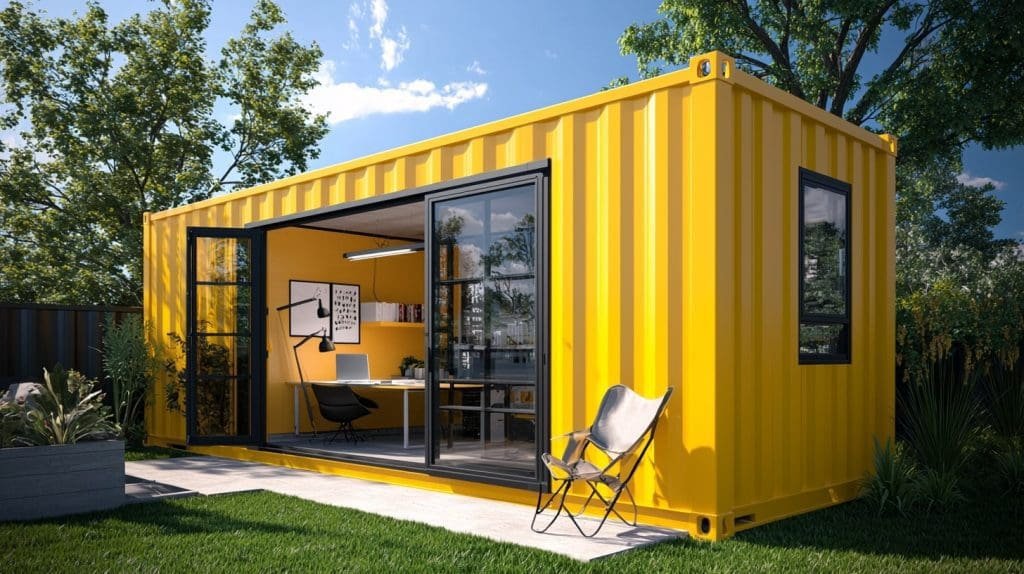
Wood cabin mobile homes are gaining traction as a preferred housing option, blending the timeless beauty of wood with the convenience and flexibility of modern mobile living. These homes offer numerous benefits that make them an attractive choice for a diverse range of homeowners, from young families to retirees seeking a simpler, nature-focused lifestyle.
Aesthetic Appeal and Natural Warmth
One of the most compelling reasons people are drawn to wood cabin mobile homes is their aesthetic appeal. The natural wood exteriors and interiors evoke a sense of warmth and coziness that is synonymous with rustic living. This natural aesthetic not only enhances the visual charm of the home but also creates a calming and welcoming atmosphere. The rich textures and grains of the wood bring a touch of nature indoors, making these homes feel more connected to their surroundings.
Eco-Friendly and Sustainable Living
Wood is a renewable resource, making wood cabin mobile homes a more sustainable housing option. When sourced responsibly, the use of wood contributes to a lower carbon footprint compared to homes built with more energy-intensive materials like concrete or steel. Additionally, many wood cabin mobile homes are designed with energy efficiency in mind, incorporating features like high-quality insulation, double-glazed windows, and energy-efficient heating and cooling systems. These features help reduce energy consumption, leading to lower utility bills and a smaller environmental impact.
Flexibility and Mobility
Another significant advantage of wood cabin mobile homes is their mobility. Unlike traditional wood cabins that are permanently fixed to one location, mobile homes can be relocated with relative ease. This flexibility allows homeowners to explore different landscapes or move closer to amenities and communities as needed. It’s an excellent option for those who desire the cabin lifestyle but want the freedom to change locations.
Cost-Effectiveness
Wood cabin mobile homes are often more affordable than their traditional counterparts. The prefabrication process reduces construction costs and time, offering a quicker and more budget-friendly path to homeownership. Furthermore, maintenance costs for mobile homes can be lower, as modern designs and materials minimize wear and tear over time.
Customization and Modern Amenities
Despite their rustic appearance, wood cabin mobile homes are highly customizable. Homeowners can choose from a variety of layouts, finishes, and amenities to suit their personal tastes and needs. Modern versions often come equipped with state-of-the-art appliances and fixtures, blending traditional aesthetics with contemporary functionality.
For those interested in exploring the diverse offerings in this category, the range of porta cabins available on porta cabins provides excellent examples of how wood cabin mobile homes can be tailored to fit different lifestyles and preferences. These benefits make wood cabin mobile homes a versatile, eco-friendly, and cost-effective solution for modern living.
Design Variations in Mobile Log Homes
Mobile log homes offer an impressive array of design variations, catering to diverse tastes and lifestyle needs. From compact, minimalist layouts to spacious, family-friendly configurations, these homes are crafted to balance aesthetic appeal with functional living spaces. The flexibility in design allows homeowners to create a personalized environment that suits their unique preferences.
Compact Designs for Minimalist Living
For those who embrace a minimalist lifestyle, mobile log homes provide sleek, compact designs that maximize space efficiency without compromising on comfort. These designs often feature open floor plans that integrate living, dining, and kitchen areas, creating a sense of openness in a smaller footprint. Clever storage solutions, such as built-in shelves and multi-functional furniture, are commonly used to optimize space, making these homes ideal for individuals or couples who prioritize simplicity and functionality.
Family-Friendly Layouts
Larger families or those who desire more space can opt for expansive designs with multiple bedrooms and bathrooms. Family-friendly layouts typically include separate living areas to provide privacy and comfort for each family member. These homes often incorporate larger kitchens and dining areas to accommodate family gatherings, as well as spacious outdoor decks or patios for enjoying the natural surroundings. Such layouts offer the perfect blend of communal and private spaces, catering to the needs of growing families.
Rustic vs. Modern Aesthetics
While mobile log homes are often associated with a rustic aesthetic, there is a growing trend towards modern interpretations. Traditional rustic designs focus on natural wood finishes, exposed beams, and stone accents, evoking the classic log cabin charm. In contrast, modern designs may incorporate sleeker lines, minimalist decor, and contemporary materials, such as metal and glass, to create a more updated look. These modern variations retain the warmth of wood while embracing current architectural trends, appealing to those who seek a balance between tradition and innovation.
Customization Options
The versatility of mobile log homes extends to customization. Homeowners can tailor their homes to reflect personal tastes and needs, selecting from a variety of wood types, finishes, floor plans, and exterior styles. Additionally, features such as energy-efficient windows, smart home technology, and eco-friendly materials can be integrated to enhance the living experience.
Enhancing Outdoor Living
Many mobile log home designs emphasize the integration of indoor and outdoor living spaces. Features like covered porches, expansive decks, and large windows help blur the line between interior comfort and the beauty of the natural surroundings. These outdoor spaces provide a perfect setting for relaxation, entertaining, or simply enjoying the scenic views.
For those seeking inspiration or ready-made solutions, the wide range of porta cabins available on porta cabins showcases the variety and flexibility in design that mobile log homes can offer. Whether aiming for a rustic retreat or a contemporary abode, the design possibilities are virtually endless, ensuring a home that truly reflects the owner’s vision.
Energy Efficiency in Mobile Log Homes
Energy efficiency is a critical consideration for many homeowners, and mobile log homes excel in this area. These homes are designed to minimize energy consumption, ensuring a comfortable living environment while keeping utility costs low. Incorporating energy-efficient features not only benefits the environment but also contributes to long-term savings for homeowners.
Superior Insulation
Mobile log homes are typically constructed with high-quality insulation materials that maintain a stable indoor temperature throughout the year. This insulation reduces the need for excessive heating in winter and cooling in summer, leading to significant energy savings. The natural insulating properties of wood also play a crucial role in keeping the home comfortable and reducing energy use.
Energy-Efficient Windows and Doors
Modern mobile log homes are equipped with energy-efficient windows and doors that prevent drafts and minimize heat loss. These components are designed to seal tightly, maintaining the indoor climate and reducing the reliance on heating and cooling systems. Double or triple-glazed windows further enhance energy efficiency by providing better thermal insulation compared to standard single-pane windows.
Advanced HVAC Systems
Many mobile log homes are fitted with advanced heating, ventilation, and air conditioning (HVAC) systems that are optimized for energy efficiency. These systems are designed to operate at lower energy levels while still providing effective temperature control. Smart thermostats can be integrated to enhance this efficiency, allowing homeowners to program and adjust settings based on their daily routines.
Renewable Energy Options
For those looking to further reduce their carbon footprint, mobile log homes can be equipped with renewable energy systems such as solar panels. These systems harness natural energy sources to power the home, significantly reducing dependence on non-renewable energy. Solar panels, in particular, are becoming an increasingly popular addition, providing sustainable energy and reducing electricity bills over time.
Eco-Friendly Building Practices
The production and assembly of mobile log homes often involve eco-friendly building practices. Many manufacturers prioritize sustainable materials and methods, ensuring that the environmental impact is minimized. This commitment to sustainability aligns with the growing demand for greener living solutions.
To explore various models that prioritize energy efficiency and sustainability, take a look at the extensive range of porta cabins offered by reputable providers. These models, available on porta cabins, showcase innovative designs and energy-saving features, making them a practical choice for eco-conscious homeowners. By investing in an energy-efficient mobile log home, you not only enhance your living experience but also contribute positively to environmental conservation.
Building Regulations and Certifications
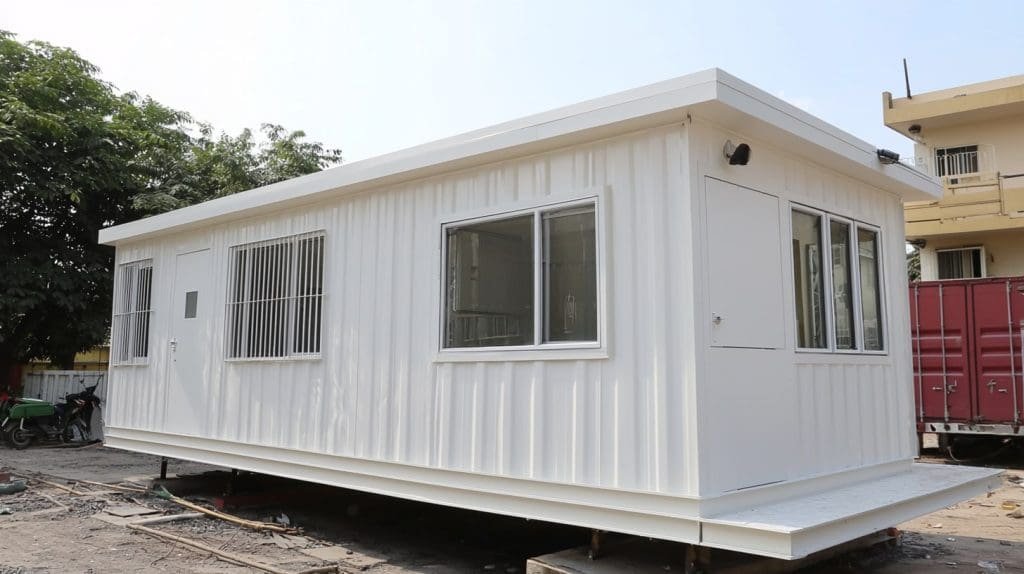
Understanding the building regulations and certifications for mobile log homes is crucial to ensure a safe, compliant, and hassle-free living experience. These regulations govern everything from structural integrity to safety standards, and adhering to them helps protect your investment and ensures your home meets all legal requirements.
Zoning and Land Use Regulations
Before purchasing or placing a mobile log home, it’s important to be aware of zoning laws and land use regulations in your chosen location. Zoning regulations dictate where mobile homes can be placed, whether they are allowed on private land, or if they must be situated within designated mobile home parks. These laws vary by region, so checking with local authorities or a zoning office is essential.
Land use regulations might also impose restrictions on the size and type of home you can place on a specific piece of land. Ensuring your mobile log home meets these criteria is a key step in avoiding potential legal issues down the line.
Building Codes and Standards
Mobile log homes must comply with national and local building codes. In many countries, manufactured homes, including mobile log homes, are built to comply with specific standards such as the HUD Code in the United States. This code outlines requirements for construction, design, energy efficiency, and safety. Adherence to these standards ensures that the home is structurally sound, energy-efficient, and safe for occupants.
In addition to national codes, local building codes may impose additional requirements, particularly concerning foundations, utility connections, and weatherproofing. Builders often work with local inspectors to ensure that all aspects of the home’s construction meet these standards.
Certifications and Quality Assurance
Mobile log homes often come with certifications that attest to their quality and compliance with regulatory standards. These certifications can include energy efficiency ratings, material quality assurances, and adherence to building codes. Homebuyers should look for these certifications as proof that the home has been built to high standards.
Some manufacturers also provide additional warranties on their homes, covering aspects like structural integrity and major systems (e.g., HVAC, plumbing, and electrical systems). These warranties offer peace of mind and can be a valuable safeguard against unexpected repair costs.
Importance of Professional Installation
Ensuring that your mobile log home is professionally installed is critical to meet regulatory standards. Proper installation affects the home’s stability, energy efficiency, and overall safety. Professional installers understand the requirements for site preparation, foundation work, and utility hookups, ensuring the home is set up correctly and legally.
For further insights into mobile log home options and compliance features, exploring reputable porta cabins models, like those available on porta cabins, can provide valuable information. These models are often built to meet or exceed regulatory standards, offering a secure and reliable living solution.
Interior Design Trends for Cabin Style Mobile Homes
Interior design plays a pivotal role in enhancing the charm and functionality of cabin-style mobile homes. While these homes exude a rustic, natural appeal from the outside, the interior offers endless possibilities for customization, blending traditional elements with modern comforts. Understanding the latest design trends can help homeowners create a space that is both stylish and practical.
Rustic Elegance
One of the most popular trends in cabin-style mobile homes is the incorporation of rustic elegance. This style combines the warmth of natural wood with sophisticated touches like sleek furniture, soft lighting, and neutral color palettes. Exposed wooden beams, hardwood floors, and reclaimed wood accents are commonly used to bring out the rustic charm, while modern furnishings and decor maintain a clean, polished look.
Open Floor Plans
Open floor plans have become a staple in modern mobile log home design. These layouts maximize the use of space, creating a more expansive feel in compact homes. By removing unnecessary walls, open plans allow for seamless transitions between living, dining, and kitchen areas, fostering a sense of connectivity and openness. This design is particularly beneficial for mobile homes, where space optimization is key.
Multi-Functional Furniture
Given the compact nature of many mobile log homes, multi-functional furniture is a trending solution. Pieces like sofa beds, fold-out tables, and storage ottomans help save space while adding versatility to the living area. These furniture items not only enhance functionality but also contribute to a clutter-free and organized environment.
Nature-Inspired Color Palettes
Cabin-style mobile homes often draw inspiration from their natural surroundings. Earthy tones like browns, greens, and beiges are frequently used to create a harmonious connection between the home and its environment. Accent colors like deep reds, burnt oranges, and soft blues can be added for a pop of color, reflecting the changing seasons and adding warmth to the space.
Modern Amenities and Technology
Despite their rustic exteriors, many homeowners opt for the inclusion of modern amenities and smart technology within their mobile log homes. Features such as energy-efficient appliances, smart thermostats, and advanced lighting systems are increasingly popular. These additions not only enhance convenience but also contribute to the home’s energy efficiency, aligning with contemporary living standards.
Personalization and Unique Touches
Personalization is a key trend in cabin-style mobile home interiors. Homeowners are increasingly looking to infuse their spaces with unique touches that reflect their personality and lifestyle. This might include custom-built furniture, handmade decor items, or artwork that resonates with their personal tastes.
For those seeking inspiration or ready-to-install solutions, the variety of porta cabins available on porta cabins showcases how modern design trends can be effectively incorporated into mobile log homes. These models highlight the perfect blend of rustic charm and contemporary sophistication, offering a wide range of design possibilities for any homeowner.
Maintenance and Longevity of Mobile Log Homes
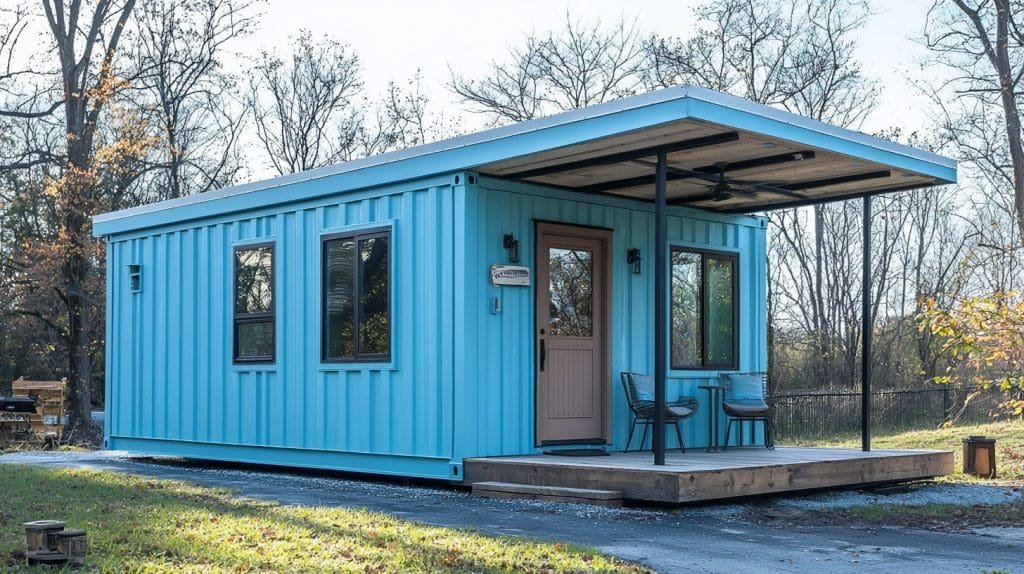
Proper maintenance is crucial to ensuring the longevity and continued comfort of mobile log homes. While these homes are designed for durability, regular upkeep can prevent minor issues from becoming major problems, preserving both the structural integrity and aesthetic appeal of the home. Understanding the key maintenance tasks and best practices can help homeowners enjoy their mobile log homes for many years.
Routine Exterior Maintenance
The exterior of a mobile log home is exposed to various weather conditions, making routine maintenance essential. One of the primary tasks is inspecting and treating the wood surfaces to prevent moisture damage, rot, and insect infestation. Applying a quality sealant or wood preservative every few years helps protect the wood from the elements, maintaining its strength and appearance.
Additionally, homeowners should regularly check the roof for signs of wear, such as loose shingles or leaks. Keeping gutters and downspouts clean and free of debris ensures proper drainage and prevents water from pooling around the foundation, which can lead to structural issues over time.
Interior Maintenance Tasks
Inside the home, maintaining a consistent and comfortable environment is important for both the residents and the structure itself. Regularly inspecting and servicing the HVAC system ensures efficient operation and prevents costly repairs. Homeowners should also check for any signs of moisture or condensation, particularly around windows and doors, as this can lead to mold growth or wood damage if left unchecked.
Flooring, especially in high-traffic areas, should be monitored for wear and tear. Replacing or refinishing floors as needed can help maintain the home’s overall aesthetic and functionality. Similarly, checking plumbing fixtures for leaks and ensuring proper operation can prevent water damage and reduce utility costs.
Seasonal Maintenance Considerations
Different seasons bring unique maintenance challenges. In colder climates, winterizing the home is essential to protect it from freezing temperatures. This includes insulating pipes, sealing drafts, and ensuring the heating system is in good working order. In warmer months, homeowners should focus on ventilation and cooling systems, as well as inspecting and repairing any damage caused by harsh winter weather.
Long-Term Care and Upgrades
Over time, even well-maintained mobile log homes may require updates or upgrades. Replacing outdated systems with modern, energy-efficient alternatives can improve the home’s comfort and reduce energy costs. Additionally, aesthetic upgrades, such as repainting or updating fixtures, can keep the home feeling fresh and inviting.
By following a regular maintenance schedule, homeowners can extend the life of their mobile log homes and ensure they remain safe, comfortable, and beautiful for years to come. For those considering new models or upgrades, exploring the range of porta cabins on porta cabins can provide insights into the latest features and maintenance-friendly designs available in the market.
Mobile Log Homes in Different Climates
Mobile log homes are not only admired for their aesthetic charm and versatility but also for their adaptability to various climates. Whether located in the snowy mountains, humid forests, or arid deserts, these homes can be designed and maintained to ensure comfort and durability across diverse environmental conditions.
Cold Climates: Emphasizing Insulation and Heating
In colder regions, mobile log homes must prioritize insulation to maintain warmth and reduce energy consumption. High-quality insulation in walls, floors, and ceilings is essential to keep the interior warm and prevent heat loss. Double-glazed windows and weather-stripped doors also play a significant role in maintaining a comfortable indoor temperature.
Heating systems in cold climates are crucial. Many homeowners opt for wood stoves or fireplaces to complement central heating systems, adding both warmth and a rustic ambiance. Additionally, radiant floor heating can provide consistent warmth throughout the home, enhancing comfort during harsh winters.
Hot and Arid Climates: Cooling and Ventilation Solutions
In hot and dry climates, the focus shifts to keeping the home cool and minimizing heat absorption. Mobile log homes in these regions benefit from reflective roofing materials and light-colored exteriors that deflect sunlight and reduce heat buildup. Adequate ventilation is also critical to promote airflow and maintain a comfortable indoor environment.
Air conditioning systems, combined with ceiling fans and strategically placed windows, help manage temperatures effectively. Many homes in arid climates also incorporate shading elements like overhangs or pergolas to reduce direct sunlight exposure and keep indoor spaces cooler.
Humid and Tropical Climates: Moisture Control and Ventilation
In humid regions, controlling moisture levels is paramount to prevent mold growth and maintain the structural integrity of the home. Mobile log homes in these climates are often equipped with dehumidifiers and robust ventilation systems to manage humidity effectively. Treated wood and moisture-resistant finishes can further protect the home’s structure from the effects of excessive moisture.
Additionally, incorporating design elements like wide eaves and verandas can help protect the home from heavy rainfall while providing shaded outdoor living spaces. Elevated foundations are also common in tropical areas to prevent flooding and improve air circulation underneath the home.
Adapting to Seasonal Changes
In regions with significant seasonal variations, mobile log homes must be designed to handle both extremes. Flexible systems like dual-mode HVAC units, which offer both heating and cooling, are beneficial. Homeowners may also use thermal curtains and weatherstripping to adapt to seasonal temperature changes, ensuring energy efficiency throughout the year.
For those looking to explore climate-adaptive designs, the variety of porta cabins showcased on porta cabins provides excellent examples of how modern mobile log homes can be tailored to thrive in different environmental conditions. These designs demonstrate how thoughtful construction and smart features can ensure comfort and resilience, regardless of the climate.
Real-Life Experiences of Mobile Log Home Owners
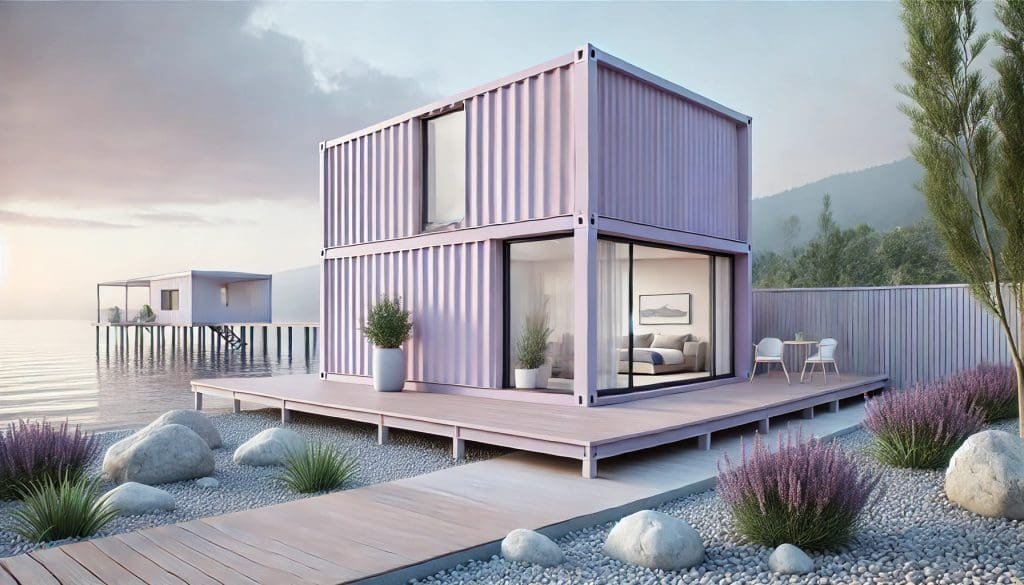
Understanding the lived experiences of mobile log home owners provides valuable insights into the practicality, benefits, and challenges of this lifestyle. These firsthand accounts highlight how different individuals and families have embraced mobile log homes to meet their unique needs, from downsizing and achieving financial freedom to pursuing a closer connection with nature.
Embracing Simplicity and Minimalism
For many mobile log home owners, the journey begins with a desire to simplify their lives. Downsizing to a mobile log home often involves decluttering and focusing on what truly matters. Owners frequently share how living in a smaller, more efficient space has helped them reduce stress and focus on meaningful activities, such as spending time with family or exploring the outdoors.
One common theme is the newfound freedom from financial burdens. By choosing a more affordable housing option, many owners have been able to save money, reduce debt, or even retire early. This financial freedom allows them to invest in experiences rather than possessions, fostering a simpler and more fulfilling lifestyle.
Closer Connection with Nature
Another significant aspect of mobile log home living is the enhanced connection with nature. Owners often select locations that allow them to immerse themselves in natural surroundings, whether it’s a secluded forest, a serene lakeside, or a picturesque mountain view. This proximity to nature has numerous benefits, including improved mental well-being, increased opportunities for outdoor activities, and a greater appreciation for the environment.
Homeowners often describe how the design of their mobile log homes—large windows, spacious decks, and natural materials—enhances this connection. The rustic charm of wood interiors and the warmth of a cozy fireplace contribute to a peaceful and harmonious living space.
Flexibility and Mobility
The mobility of these homes is another frequently cited advantage. Owners appreciate the ability to relocate, whether for work, to explore new places, or to be closer to loved ones. This flexibility is particularly beneficial for retirees and adventurers who enjoy the freedom to change their scenery without giving up the comforts of home.
Community and Social Aspects
Mobile log home communities also play a role in enhancing the living experience. Owners often form close-knit communities where they share resources, organize events, and support one another. This sense of community can add significant value to the mobile log home lifestyle, offering social connections and a supportive environment.
For those interested in exploring options that align with these real-life experiences, the wide selection of porta cabins available on porta cabins demonstrates how modern designs can cater to various lifestyles and preferences. These stories showcase the adaptability and appeal of mobile log homes, proving that they offer more than just a place to live—they provide a lifestyle filled with opportunities for simplicity, nature, and community.
Mobile Log Homes for Different Lifestyles
Mobile log homes offer an adaptable living solution, catering to a wide variety of lifestyles and preferences. Whether you are a retiree seeking a tranquil retreat, a young family looking for an affordable home, or an adventurer desiring mobility, these homes provide unique benefits that align with diverse life choices.
Retirees: A Peaceful and Cost-Effective Solution
For many retirees, mobile log homes represent a peaceful escape from the hustle and bustle of city life. These homes are often located in serene, natural settings that promote relaxation and a slower pace of life. With lower maintenance and reduced costs compared to traditional homes, mobile log homes allow retirees to stretch their retirement savings further, focusing their resources on leisure activities, travel, or spending time with family.
The compact and manageable size of these homes is another appealing factor for retirees. It minimizes upkeep, allowing them to enjoy more free time without the burden of extensive home maintenance. Additionally, many retirees appreciate the option to relocate their mobile log home, choosing to settle in warmer climates during the winter months or closer to family and friends as their needs change.
Young Families: Affordable and Customizable Living
Young families are increasingly drawn to mobile log homes for their affordability and customization options. These homes offer a cost-effective way to achieve homeownership, freeing up financial resources for other priorities like education, travel, or starting a business. With flexible floor plans and customizable designs, mobile log homes can be tailored to meet the specific needs of growing families, including multi-bedroom layouts, functional kitchen spaces, and ample storage.
Safety and energy efficiency are additional benefits that appeal to families. Modern mobile log homes are built to meet stringent safety standards and often include features such as energy-efficient insulation and windows, reducing utility costs and creating a comfortable living environment.
Adventurers and Nomads: Freedom and Mobility
For adventurers and digital nomads, the mobility of these homes is a game-changer. Mobile log homes allow them to maintain a comfortable living space while exploring new locations and experiences. The ability to transport their home means they can chase seasonal climates, access remote destinations, or simply satisfy their wanderlust without sacrificing the comforts of home.
These homes also serve as a practical base for outdoor enthusiasts. Whether parked by a mountain trail, a lakeside, or a forest clearing, mobile log homes offer a cozy retreat after a day of adventure. The durability and insulation of these homes make them suitable for various terrains and weather conditions, enhancing the overall experience for the adventurous spirit.
For those exploring versatile housing options, best port cabins or modular porta cabins provide inspiration. Similarly, ms porta cabins offer practical and durable solutions that mirror the adaptability of mobile log homes. These variations demonstrate how the mobile log home lifestyle can cater to different life stages, needs, and aspirations, making it a viable option for a broad spectrum of people.
Future Trends in Mobile Log Homes
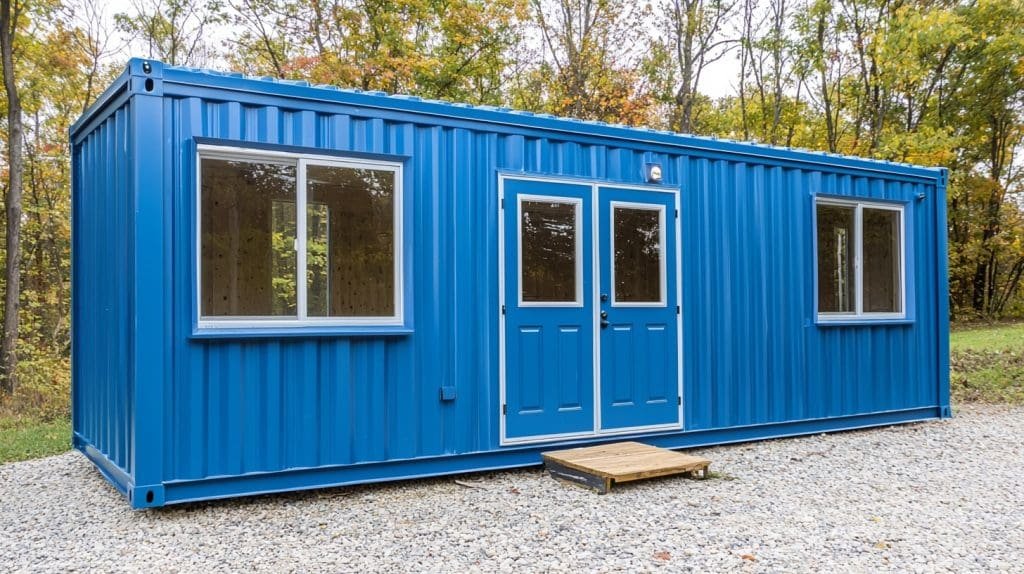
The evolution of mobile log homes is shaped by emerging trends in design, technology, and sustainability. As more people seek flexible, eco-friendly living solutions, manufacturers are innovating to meet these demands. The future of mobile log homes promises even greater customization, improved energy efficiency, and enhanced connectivity, making these homes more appealing and functional than ever before.
Smart Home Integration
One of the most exciting trends in mobile log homes is the integration of smart home technology. Modern homeowners are increasingly looking for ways to enhance convenience, security, and energy management. Smart thermostats, lighting systems, and security cameras are becoming standard features, allowing homeowners to control various aspects of their home remotely via smartphones or tablets.
In addition to these basic smart home features, future mobile log homes are likely to incorporate more advanced technologies, such as automated climate control systems that adjust based on occupancy and weather conditions, as well as integrated entertainment systems that enhance the living experience.
Sustainable and Green Building Practices
As environmental concerns continue to grow, the demand for sustainable building practices in mobile log homes is on the rise. Future designs will likely prioritize the use of eco-friendly materials, such as reclaimed wood, low-VOC finishes, and energy-efficient appliances. Solar panels, rainwater harvesting systems, and composting toilets are also becoming popular additions, reducing the overall ecological footprint of these homes.
Additionally, advances in insulation and building techniques are expected to further improve the energy efficiency of mobile log homes, making them even more attractive to eco-conscious buyers. These homes will not only provide a comfortable living space but also contribute to a healthier planet.
Modular and Customizable Designs
The future of mobile log homes will likely see a greater emphasis on modular construction. This approach allows for quick assembly, reduced waste, and the flexibility to customize the layout according to individual preferences. Modular designs also make it easier to expand or modify the home in the future, accommodating changing needs without requiring a complete rebuild.
Customization will continue to be a major focus, with homeowners having the ability to choose from a variety of layouts, finishes, and features. This trend ensures that each home can be tailored to the specific lifestyle and aesthetic preferences of its owner, enhancing both functionality and personal satisfaction.
Enhanced Mobility and Adaptability
Technological advancements in materials and construction will likely improve the mobility and adaptability of these homes. Lighter, more durable materials will make transportation easier, while design innovations will allow homes to better withstand various climates and terrains. This will expand the possibilities for where and how these homes can be used, from off-grid wilderness retreats to modern urban environments.
Exploring options like modular porta cabins and ms porta cabins showcases how these innovations are already shaping the future of portable living. These developments highlight the potential for mobile log homes to offer even greater flexibility, sustainability, and modern conveniences, ensuring they remain a popular choice for years to come.
Conclusion and Call to Action
Mobile log homes have proven to be a versatile, cost-effective, and environmentally friendly housing solution that appeals to a wide range of lifestyles. From retirees seeking tranquility, young families desiring affordability, to adventurers embracing mobility, these homes offer a unique blend of rustic charm and modern convenience. As we’ve explored throughout this guide, mobile log homes are not just about aesthetics; they provide practical benefits like energy efficiency, adaptability to various climates, and the potential for long-term savings.
Why Choose a Mobile Log Home?
The decision to opt for a mobile log home goes beyond the allure of natural wood finishes and cozy interiors. These homes offer the flexibility to relocate, making them perfect for those who crave change or need to move for work, family, or leisure. Their cost-effectiveness compared to traditional homes provides an accessible entry into homeownership, while their energy-efficient designs help reduce ongoing expenses.
Moreover, the growing trends in smart technology integration, sustainable building practices, and modular customization ensure that mobile log homes will continue to evolve, meeting the changing needs of homeowners. Whether you’re seeking a permanent residence or a seasonal getaway, mobile log homes offer a compelling solution that balances comfort, style, and practicality.
Explore Your Options
If you’re ready to take the next step, exploring various models and providers can help you find the perfect fit for your needs. Companies like Saman Portable offer a diverse range of solutions tailored to modern living requirements. From best port cabins to ms porta cabins, they provide options that combine innovation, quality, and affordability.
To learn more about the vision and expertise behind these offerings, visit their About Us page. Understanding the dedication and craftsmanship that go into these homes can provide confidence in your choice, ensuring you invest in a home that aligns with your lifestyle and values.
Your Future, Your Home
In conclusion, mobile log homes represent a forward-thinking approach to housing, offering flexibility, sustainability, and a strong connection to nature. Whether you’re drawn by the desire for a simpler life, a more affordable home, or the freedom to move, these homes provide a versatile solution that adapts to your journey. Embrace the possibilities and start your adventure with a mobile log home that truly feels like home.
FAQs about Mobile Log Homes
1. What are mobile log homes?
Mobile log homes are prefabricated homes designed to resemble traditional log cabins. They combine the rustic charm of log cabins with the flexibility and affordability of mobile homes, allowing for easy relocation.
2. How do mobile log homes differ from traditional log cabins?
Unlike traditional log cabins, which are built on permanent foundations, mobile log homes are designed to be transportable. They are typically more affordable, quicker to construct, and easier to relocate.
3. Are mobile log homes customizable?
Yes, mobile log homes offer a range of customization options, including different floor plans, interior finishes, and exterior designs. Homeowners can personalize their homes to fit their style and functional needs.
4. What are the benefits of owning a mobile log home?
Mobile log homes provide several benefits, including affordability, flexibility, energy efficiency, and a shorter construction time. They also offer the aesthetic appeal of a log cabin with the convenience of mobility.
5. How energy-efficient are mobile log homes?
Modern mobile log homes are designed with energy-efficient features such as high-quality insulation, energy-efficient windows, and advanced HVAC systems. These features help maintain a comfortable indoor climate while reducing energy costs.
6. What kind of maintenance do mobile log homes require?
Regular maintenance includes sealing the exterior wood to protect against weather damage, inspecting the roof and gutters, and servicing HVAC systems. Interior maintenance may involve managing humidity and maintaining flooring and finishes.
7. Can mobile log homes be used in all climates?
Yes, mobile log homes can be designed to suit various climates. Proper insulation, heating, and cooling systems ensure they are comfortable in both cold and hot environments. Weatherproofing and durable materials also enhance their adaptability.
8. Do mobile log homes require permits for installation?
Yes, setting up a mobile log home typically requires permits, including building permits, plumbing, electrical, and zoning approvals. It’s important to check local regulations and building codes before installation.
9. How long does it take to build and set up a mobile log home?
The construction of mobile log homes is faster than traditional homes, often taking a few weeks for prefabrication in a factory. On-site assembly can be completed within days to a few weeks, depending on the design complexity.
10. Where can I find more information or purchase a mobile log home?
For detailed information and purchasing options, you can explore resources from reputable providers. Saman Portable offers comprehensive guides and contact options for inquiries about mobile log homes.
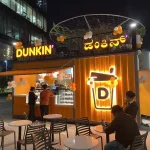 Container Cafe
Container Cafe